MSc Alumni Stories
Our Alumni are the ultimate ambassadors of the Smurfit learning experience. They provide the most concrete proof of the excellence that typifies our School. Find out more from our alumni and the key role their Smurfit Masters has played in their professional life.
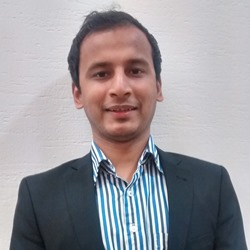
Kaustubh Labhe
MSc Management '14
Vice President at JP Morgan Chase
"It was a privilege for me to pursue my Masters at the prestigious UCD Smurfit School. My time at UCD Smurfit School not only exposed me to the quality and expertise of the faculty, but to an internationally diverse learning environment. The structure of the course met my expectations and complemented my existing engineering undergraduate degree. The lecturers and other staff at UCD Smurfit School were friendly and helpful and made the transition to studying abroad in a new country a wonderful experience. I would recommend UCD Smurfit School for a transformational experience and a great study abroad choice for students."
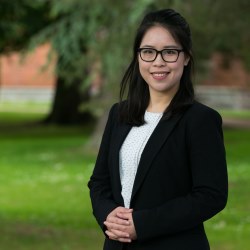
Mengying Huang
MSc Marketing Practice '17
"I chose to study at UCD Smurfit School due its great reputation and strong network base with a wide variety of companies across Ireland."
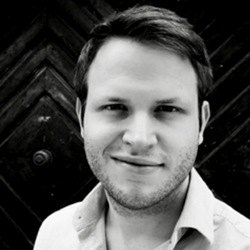
Michael Queisser
MSc Marketing '14
Product Marketing Manager at Google
"My time at UCD Smurfit School has been truly beneficial, not only concerning all the skills that I gained but also in terms of personal development. It was only a year, but working together with such a wide range of talented people from all over the world and a truly dedicated staff was the best possible academic preparation for my career. Time was flying and I didn’t regret for a single second that I decided to come to Dublin to study here. One aspect I appreciated especially is the high number of real-life projects with companies such as Procter & Gamble, Qualtrics and Keogh’s."
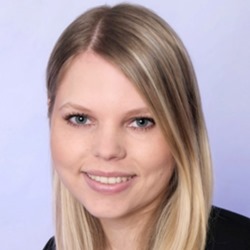
Anja Holocher
MSc HRM '11
Medical Student at Heinrich Heine University Düsseldorf
"I am truly grateful to have been a student at UCD Smurfit School and to have gained such valuable experience while studying Human Resource Management. My course enabled me to acquire an all encompassing foundation in Human Resource Management and to quickly understand various HR structures. Moreover, small classes, excellent lecturers and a great learning environment all added to the unique experience I had while studying at UCD Smurfit School. I can genuinely recommend this excellent School and especially the MSc in Human Resource Management course."
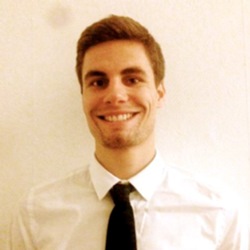
Thomas Bonnefoy
MSc Marketing '14
CEO and Co-Founder at PRISMO
"I had both a great academic and personal experience at UCD Smurfit School as a Marketing Masters student. The quality of the student experience is really high thanks to the teaching excellence, the facilities, and especially the people. As a student, you an feel there is a genuine global follow-up of your experience from the teachers and the Smurfit staff. The MSc in Marketing at UCD Smurfit School is a comprehensive course as it enables you to embrace the main marketing theoretical principles and to apply them through real-life case studies and operations-driven projects. This complete Master’s course enabled me to step into the business world with confidence, with the required knowledge and skills."
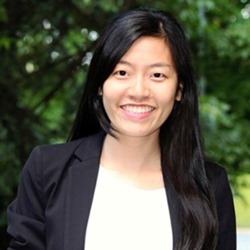
Tang Huynh Phuong
MSc Marketing '14
Senior Research Executive IPSOS
"I heard about UCD Smurfit School from some UCD Smurfit School alumni in my country, Vietnam. Besides its international recognition as one of 100 leading business schools in the world, I also chose to study in this school because of its reputation for a dynamic international studying environment and prestigious lecturers. Studying at this university has been rewarding and I am proud to have graduated from here. The core modules of the course offered me a solid foundation in different aspects of marketing management such as strategic planning, marketing communications planning and marketing research, while optional modules facilitated more in-depth study of my main interest area of brand management. The knowledge I have gained from this course allows me to undertake marketing planning tasks more efficiently in my current position. Moreover, the variety of marketing projects that I had to take on during the course equipped me with a wide range of hands-on and practical experience, which will be very useful for my current role as a marketing assistant and my career as a brand manager in the future. Finally, being immersed in an internationally diverse studying environment with students from different cultures was a great personal and professional experience for me. My social life is enriched with many international friendships from my class. Also, the exposure to various mind-sets and viewpoints during the course still helps to facilitate my adaptation into the multi-cultural working environment of my company, and improve my skills in dealing with international partners. Overall, I have thoroughly enjoyed studying for a marketing degree and look fondly upon my time at UCD Smurfit School. I highly recommend this course to anyone wishing to benefit from a wellrounded student life with exceptional courses, excellent lecturers, and a uniquely diverse academic and social environment."
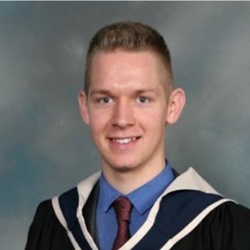
John Byrne
MSc International Business '14
Mid Market Account Executive at Salesforce
"It was a privilege to study at UCD Smurfit School. The MSc in International Business has given me a theoretical and practical grounding in global issues across a range of business areas including strategy, management and even finance. The diversity within this Masters allowed me to refine my interests and realise that research within management was the career path that I wanted to pursue. Another aspect of this degree is the international diversity of students on the course which gave me the opportunity to make friends and future connections from all over the world. This, for me, was an added bonus and highly rewarding. I am also glad that I had the opportunity to study at UCD Smurfit School as the academic and support staff there was consistently helpful, encouraging and supportive all the way through. Looking back, I believe there is nowhere in the country that could rival this experience."
 Lin.jpg)
Lacy (Meng Jung) Lin
MSc Supply Chain Management '14
"UCD Smurfit School has opened a world of possibilities to me. Throughout the course, I gained the most up to date information on supply chain management across many industries. Moreover, I was given the opportunity to run a supply chain consulting project at Dell. This helped me to apply what I had learned in practice before I commenced in this area in the real world. The course also enhanced my professional skills and gave me the opportunity to pursue my dream job in one of the best companies in the world. I would definitely recommend choosing the MSc Supply Chain Management at UCD Smurfit School for a bright future!"
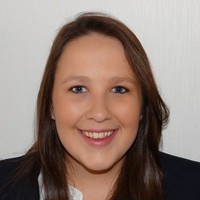
Clodagh McCullagh
MSc Quantitative Finance '14
Global Markets Sales Business Manager at MUFG
"Having studied Commerce and Spanish at UCD for my undergraduate degree, I decided to make the transition to UCD Smurfit School to enhance my knowledge of finance. The degree was very engaging and it was quite project intensive, with the projects covering real life situations that could be directly applied to professional working situations. The class was small and very diverse with the majority of students being international students. This gave everyone the opportunity to understand different working styles and learn how to adapt and succeed in an international environment. Additionally, the access to the Bloomberg terminals proved very beneficial for my internship. I would recommend this course to anyone interested in pursuing finance, with particular emphasis on investment banking, global markets, or quantitative analysis, as a career."
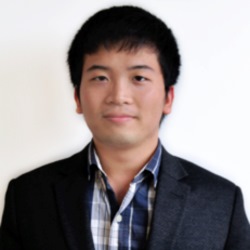
Minh Tung Dao
MSc iBusiness '14
Account Manager at Qsoft Vietnam
"I am now an Account Manager at Qsoft Vietnam, a software outsourcing company in Vietnam with 100+ employees. Originally I graduated with a Bachelor of Computer Science with a strong technical background. I have acquired business knowledge, communication skills, international experience and a business network throughout my studies at UCD Smurfit School on the MSc iBusiness - Innovation through ICT course. With the knowledge, experience and skills I have gained, I am doing very well in fulfilling my responsibility as an account manager. I got my new job only one month after coming back to Vietnam. Without the opportunity that UCD Smurfit School gave me, I would not be able to achieve this. UCD Smurfit School was the best experience for me. Friendly classmates, eminent professors, kind-hearted staff, an intimate campus and a beautiful apartment, all contributed to my dream and remain indelible in my memory."
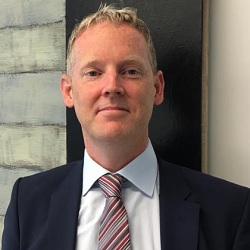
Andrew McDowell
MSc Banking and Finance ’92
Partner at Strategy&, part of the PwC Network
In a career characterised by roles with particular challenges and specific end goals, Andrew McDowell has been Taoiseach Enda Kenny’s economic advisor to Vice President at the European Investment Bank in Luxembourg.
Tell us a bit about your education and early career
I’m a UCD person through and through. There was a time when I was there that my two sisters, my brother and my mother were there too. My parents are both UCD graduates, as are three of my grandparents. So, we’re a big UCD family.
The thing I did differently was to study commerce instead of law. I thought commerce opened up more opportunities and I wasn’t narrowing myself at an early age. It’s a very good foundation on which you can build a career in all sorts of different directions.
I was definitely most interested in economics and finance so I went on to do the master’s degree in finance in the Michael Smurfit School.
After a year of accountancy, which I decided wasn’t for me, I went to the John Hopkins School of Advanced International Studies, Bologna where I did European studies and economics.
I then went to work at the Economist Intelligence Unit in London where I did country analysis and forecasting for a number of European countries. My girlfriend Caitriona – now my wife – was in Dublin, so after a lot of time spent in Stansted Airport I moved back and worked for a couple of years as economic adviser in the US embassy.
I moved on to Forfás, the national enterprise development agency, where I initially worked primarily on international trade policy, before broadening out to take responsibility for the National Competitiveness Council and the Expert Group on Future Skills Needs.
About that time I returned to UCD on a part-time basis to do the MBA. I was taking on more management responsibility within Forfás and thought it was important to develop a better understanding of organisational and management skills and strategy.
That fulfilled all my expectations. MBAs are very intense and I think one of the biggest things you get is that experience of working very closely and very hard with a bunch of other students. You tend to forge bonds that last a very long time.
Around 2005 I met Enda Kenny at the airport in Paris on the way back from the OECD. We ended up talking while queuing up at the check-in desk – I expressed some concerns about the direction of the economy. Coming into the 2007 election when he was looking for an economic adviser, I got a call asking if I’d be interested in interviewing for the job. I’d never been very active politically but I saw this as a wonderful opportunity to bring ideas and advice into practice.
I was with Fine Gael from 2007 until 2011, initially as economic advisor. Then I took on a broader role as director of policy to prepare policy positions for the party in every area.
During that period, my worst fears had become fulfilled in terms of the direction of the economy. It was a harrowing time politically, but also a fascinating time for somebody involved in economic policy formation. The challenge couldn’t have been greater.
Enda became Taoiseach in 2011 after an election fought on the basis of the five-point plan to restore the country’s economic fortunes. He asked me to join him as his economic adviser and programme manager in government and I was there until the end of August 2016. Under his leadership it’s quite evident that most of what was promised and planned in 2011 was delivered in terms of turning the economy around and moving the country out of the bailout.
What is your current role?
I joined the European Investment Bank as a vice president in September for a four-year term. I was quite familiar with the EIB from the very positive role it played in Ireland’s economic recovery. The opportunity came along for Ireland to nominate a vice president for the first time in 12 years and I was privileged enough to be nominated by the government.
What does the role involve?
The role is first and foremost to participate in the collective decision making of the EIB management committee, which consists of eight vice presidents including myself and is chaired by EIB president, Werner Hoyer. It is responsible for the day-to-day running of the institution and for recommending the larger lending decisions to the board of directors.
The purpose of the EIB itself is to support the policy goals of the European Union through the development of financial instruments. The bank’s two top priorities within Europe have been economic and social cohesion and they’re reflected in all the main lending streams of the bank, which is the largest multilateral lender in the world.
All decisions are taken on a collegiate basis so the eight vice presidents have to be familiar with every area and have to immerse themselves in all the major lending proposals. That said, each of us has oversight responsibilities for our particular areas.
In addition to Ireland, I am looking after the EIB's relationship with Romania, Austria, Norway, Iceland, Liechtenstein, Switzerland and the Former Yugoslav Republic of Macedonia within Europe, as well as southern Asia, including India, Pakistan, Bangladesh, Nepal, Bhutan, Sri Lanka, the Maldives, Afghanistan, Iran and Iraq. I also have oversight responsibility for our lending to the energy sector, and joint responsibility for our lending to the agriculture and agribusiness sectors. Within the bank, I have oversight responsibility for our economics function.
A big priority for me will be to expand the presence of the EIB even further over the next few years. In Ireland, we are seeing the economy recovering strongly but that’s beginning to run into some bottlenecks in terms of infrastructure, housing and the ability of a lot of companies to finance additional investment. The EIB can play a role in working with other financial institutions and investors in addressing a lot of those bottlenecks. In particular, we need to develop stronger links with the private sector.
One of my challenges over the coming months is to develop that greater awareness within the private sector that the EIB has products and offerings in terms of both debt and quasi-equity type instruments with long maturities that will address their financing needs. During December, we opened an office in Dublin for the first time. We're hoping our presence on the ground will boost annual lending volumes in Ireland to at least €1bn per year, which will be around 40% up on annual average volumes in the last five years.
Incidentally, I’m proud of the fact that the EIB has been particularly active in financing investments by the Irish higher education sector. Over the next few months, we hope to have completed investment loans for every single Irish university, including UCD, which has received two loans, totalling €104m. In the last few years, the bank has provided more than €650m to support transformational investment at Irish universities. On a per capita basis, it has lent more to higher education in Ireland than any other country in the world and, overall, Ireland is the fifth largest recipient of loans for this sector after the UK, Germany, France and Spain.
What is your philosophy in business?
My philosophy in my professional life has always been to look to things that I enjoy. Unless I enjoy my work, I don’t think I’m very effective. I did a year of accountancy and decided that while it was a very good opportunity and would be a very steady profession, it wouldn’t provide me with the intellectual challenge I was looking for. Ever since, I’ve decided that unless I’m really enjoying what I do and I wake up every morning looking forward to the challenges and am thinking about what I’m doing rather than just doing it by rote, I’m not going to be very effective at it.
I also think change is good. My career has been characterised by periods of time where I’ve worked in organisations, delivered on the goals I’ve set for myself and then looked for new challenges.
What is your leadership style?
I’ve learnt over the last 20 years that you can’t do anything unless you’re working with people who have a sense of mutual respect. Developing those personal relationships is always the first challenge I’ve taken on in any new job. I think it’s important within a reasonably short period of time to develop a clear sense of direction for where you want to go and where you want to bring people. I do tend to challenge people around me within a couple of months to agree where we’re going to be in two or three years’ time and what difference we’re going to make. For me, it’s always important to articulate and be able to synthesise quite clearly what the end goal of the team is going to be and have everybody working towards the same thing.
What are your tips and advice for success?
Follow what you like. When you enjoy something it’s a sign that it’s an area where you’re going to be able to make a positive contribution. I always encourage younger people to experiment for a few years in terms of their professional careers. People tend to commit themselves to careers and specialise at far too young at age. People should feel able to change and experiment right through their twenties, and beyond, to find out what they enjoy. If you don’t enjoy work, you’re not going to use your full potential.
What do you feel has been your biggest achievement to date?
Professionally, working with Taoiseach in government for five years, steering the country back to economic growth and lower unemployment, and working with so many people across government and politics to deliver on that challenge has been a source of great satisfaction.
Who or what has influenced you?
My father and my mother have been very strong influences and both gave me great encouragement and great freedom to choose and pursue my own direction. I’ve seen other colleagues and friends who grew up in households where the direction was pre-set for them. That certainly wasn’t the case in my house and I’ve always appreciated that.
In terms of UCD influences, maybe my economics professor in the Smurfit School, Des Norton. Des was not only a great economics professor, but a great reader of life and somebody who enjoyed life to the full.
What are your interests outside work?
I don’t get much of an opportunity right now. They’re working me very hard in the EIB! For the last few months, I’ve been Luxembourg during the week and commuting back at the weekends to spend time with my family.
However, things will change from the beginning of January when the family will be moving over to Luxembourg. Then I hope to start taking up some of my old pastimes that I used to do before I joined government five years ago – things like golf and squash and walking. I look forward to all of that.
What are your plans for the future?
The challenges ahead in the next four years and the contribution I hope to make here predominate in my head. I’ve never been a person who’s planned my career with great precision. I think if you give everything to what you’re doing in the present and you succeed in what you’re doing, opportunity then arises. We’ll see what happens. For the moment I’m absolutely focused on the job.
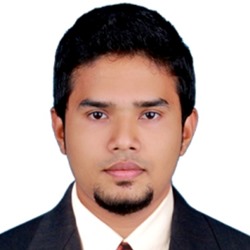
Joby John
MSc Management '13
Group Financial Controller at ION
"It was a privilege for me to secure admission to pursue an MSc in Management with adequate financial assistance (MSc Regional Merit Scholarship) at UCD Smurfit School. I am extremely delighted that I got a chance to study with highly motivated and industrious graduate students from different backgrounds and cultures in an ideal mini-international-business world. The eminent faculty and the emphasis placed on general management orientation and rigorous research methodologies certainly brought out the best in me, which helped me to achieve outstanding scholastic records. Recently, I have secured a job with Ernst and Young as a Financial Assurance Associate and will be doing ACA along with this, which will take me to the next level of professional qualification. I certainly recommend UCD Smurfit School to any aspiring graduate based on the breadth and depth of the courses coupled with a stimulating research environment it will be the right mix for seminal work and pioneering business studies."

Lisa McDonnell
MSc Business Analytics '14
VP Commercial Analysis at SMBC Aviation Capital
"I thoroughly enjoyed my time in UCD Smurfit School and found the year invaluable for my career progression. The MSc in Business Analytics is a stimulating course that allowed me to use my numerical skills and leverage them in a new area, making business decisions based on data. Through my studies in UCD Smurfit School I gained the skills required to begin a career in this area. The greatest experience given to students from the Masters is the opportunity to work with businesses on real life problems as part of the summer dissertation. It is one of the main reasons for UCD Smurfit School’s reputation of excellence as the leading business school."
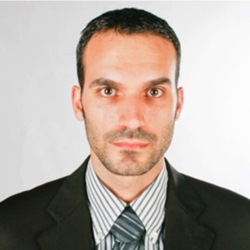
Javier Bouzas
MSc International Management / CEMS MIM '14
Computer Science Teacher
"I first discovered UCD Smurfit School in 2007, after evaluating different universities and countries to pursue my first postgraduate course. UCD Smurfit School has a unique academic environment, quality of teaching, outstanding prestige and an unrivalled lifestyle in Dublin city. CEMS has provided me with the opportunity to increase my knowledge in international business and relationships while improving intercultural awareness and has proven to be very beneficial for my professional development."
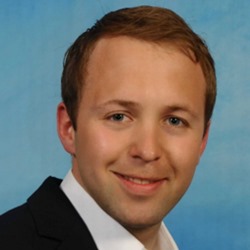
Patrick Nebel
MSc International Business '14
Product Management / Launch Management at BMW Group
"I am proud to be an alumnus of UCD Smurfit School as I really enjoyed my time at the School on the MSc International Business course. Apart from a providing me with a strong grounding in international business, the course was enhanced through the opportunity to apply what I had learned by taking part in a number of real-life projects with Irish companies. I acquired valuable knowledge and business experience on the programme. It was also a pleasure to meet and interact with students from many different countries. I built a network of international contacts who now enrich my career and help me pursue my professional and personal goals. After graduation, I joined Capgemini Consulting as Senior Consultant for the German practice. In my daily work, I can build upon the skills and experience I gained at UCD Smurfit School. I would definitely recommend UCD Smurfit School to anyone pursuing a career in an international context."
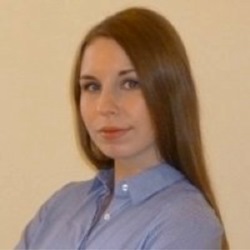
Anastasia Golovanova
MSc Finance '11
EMEA Product Specialist, Google
"Having graduated from a University in Moscow, I immediately started researching MSc courses offered by graduate business schools across various countries. The MSc in Finance at UCD Smurfit School matched my interests in the financial domain perfectly. The course was even more comprehensive and enjoyable than I expected. The academic and consulting experience of the faculty provided a world class learning environment. I would highly recommend the course to all those who are interested in financial markets and would like to pursue a career in investments."
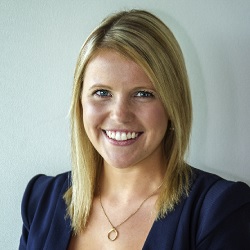
Jennifer Griffin
MSc Marketing Practice '11
Senior Vice President at Citi
Determination, strong focus and a willingness to work hard helped propel Jennifer Griffin to the role of senior vice president and site manager at Citi Tampa by the age of just 28.
Tell us a bit about your education
My biggest education was from growing up in our family pub in Co Limerick. I really learnt a lot there about interacting with so many different kinds of people, generations and backgrounds.
Formally, I did a bachelor of science in real estate in Limerick Institute of Technology. The third year of the degree was work placement, which I split between a residential auctioneers and Office Ireland, a serviced offices company, where I was in charge of the marketing. That’s where I found my love for advertising and marketing, and I decided I would focus on trying to do well in my fourth year so I could do a master’s in marketing at Smurfit Business School.
Given my primary degree, going to Smurfit wasn’t a clear path. But I’m very ambitious and decided to aim high. I went into my fourth year with a mission and was lucky to get my first at the end of it. It was the first year of the Aspire Scholarship and I was also very fortunate to be a scholarship recipient.
I went into Smurfit feeling very focused. As several people had really believed in me, I felt a huge sense that I owed it to myself and to others to do well. I really applied myself and was able to achieve top results. I also found it fascinating and was totally engaged from day one. The action learning environment assisted in my professional development and has helped shaped the person I am today.
Tell us a bit about your career to date
When I left Smurfit in 2011 I went straight into Citi on a three-month internship in marketing and public affairs and have been there ever since.
I managed to get my contract extended and was made a full time employee after a year. Then, I was made a junior analyst and my role became more focused on the company’s resource and location strategy globally and I started working with our offices in Asia, Latin America, Europe, and in North America. It was all about ensuring we had consistent practices and standards across the globe.
After three years with Citi I was made a vice president of shared services and relocated to Tampa, Florida. My role focused on corporate governance, communications and standard practices related to talent and culture.
Then, in June last year I was promoted to senior vice president in public affairs and site manager for Citi Tampa. So, I’m back to where I began with Citi in public affairs and marketing, but am also directly responsible for the management of the Tampa campus, a site of over 5,500 employees.
Being Irish in a role like mine creates attention. It is amazing the brand Ireland holds internationally – as I coordinate with external partners everyone has an Irish story to tell. An interesting project I got to collaborate on was the Tampa and Dublin sister city partnership led by Mayor Bob Buckhorn of Tampa and Mayor of South Dublin Sarah Holland. I ensured Citi was involved given the direct experience with the two cities through educational partnerships, community development and talent development.
I’ve worked really hard and the rewards have followed but I never really planned to get to VP or SVP. It’s just happened that the hard work has paid off. It’s meant some long nights and very long weeks. But it has been an extremely rewarding company to be with.
What is your leadership style?
I think I’m very personable. I have to like my job and I have to like the people I work with so it’s more of a charismatic leadership style. But I do have very high expectations of my team and very high expectations for the results. I do push people and I push myself.
I also like to empower people. I say to my team, go as far as you can go, nothing will break. It’s similar to how I’ve been empowered in Citi and in my other jobs. If you give people trust and belief and responsibility I think they will go very far.
What’s your philosophy in business and in life?
I have a magnet on my wall that reads: “What if we acted like everything was easy?” Sometimes I think that’s the best way to approach things – don’t get overwhelmed, just try to break things down to actionable points. But I still like to keep the big picture in mind so that when you do have those stressful moments, you always remember what the overall objective is.
Who or what are your influences?
I have been very fortunate to have had great lecturers and mentors throughout my education and career. Key things I have learned from leaders in my life are to be conscious of your ’shadow‘: as a manager and a leader you carry a brand and your team and partners feed off that.
I also get a lot of my influence and energy from my family and from just seeing people who have gone where nobody has gone before. People often say I’m too young to be SVP but several other people had done it already. It’s really not impossible.
What are your tips and advice for success?
I think having the big picture in mind for yourself and where you want togo really is the biggest motivator. If you have that nothing will stop you except yourself. That’s the biggest piece of advice I’d give.
I also believe that if you work hard and remain focused the rewards will follow.
What successes or failures have been your biggest lessons?
For me, a major success was getting into Smurfit. I still see that as a very pivotal point in my life and my career because it all came down to having a can-do attitude – nothing was going to stop me. I constantly think about that. And when I compare the limited knowledge I had then to what I know now it’s a great motivator for me to continue striving forward.
I’ve also learned what not to do. I didn’t just come up with the idea of acting like everything is easy – I had to learn it. There was a point when I started at Citi that I was putting my hand up for everything, both professionally and outside work. Externally, I was managing a football team, playing tag rugby and traveling to my family in Limerick helping out with the pub.
There came a point where I was totally overworked and I put so much pressure on myself, personally and professionally. I just had to take a step back.
I’m a big practiser of being mindful, being in the moment and just breaking things down. You are only one person and I’ve had to learn that.
What are your interests outside work?
I love being outdoors so I’m very fortunate here that the weather is beautiful. I like to go to the beach and I love swimming and I run. I’m a big GAA supporter. In Tampa we have a very small GAA club and I play with the football team. I’m one of two girls and the average age of the team is around 40. It’s more about the socialising than the playing.
I’m a big believer in healthy body, healthy mind and I try to keep myself active.
What are your plans for the future?
Professionally, I’m still very much learning and growing. I enjoy working with the community and seeing projects develop from ideation to inception. There are several growing trends within the industry today with the increasing availability of customer centric data, the daily use of social media and the changing dynamics around urban development. I am excited for the workplace of the future.
Personally, I’m very happy where I am at the moment. Ultimately, I do want to live in Ireland and preferably the southern part of the country, but there are no plans to move back in the immediate future.
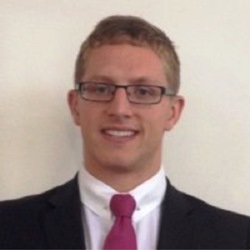
Brian Fitzpatrick
MSc Marketing '13
Divisional Director at Paragon Group
"The MSc Marketing curriculum in UCD Smurfit School contained all of the elements necessary to develop myself as a marketing professional. The course focuses on all aspects of marketing, from strategy formulation to implementation and equips students with the skills to remain at the forefront of an ever-changing marketing environment. The combination of excellent lecturers and insights from industry practitioners allowed for a comprehensive education, spanning cutting-edge industry practice and academic theory. In addition to lectures, the diverse perspectives of an international class and the combination of various experiences created rich discussion and learning. Throughout the year, I worked on several live projects, with clients ranging from a multinational household name to a small Irish start-up. This exposure allowed me to put theory into practice and coupled with lecturer feedback, provided the richest and most rewarding learning opportunities of the course."
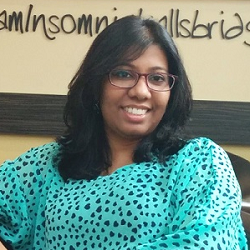
Rebecca Heins
MSc International Business '14
Strategic HR Partner at Wells Fargo
A love of learning took Rebecca Heins from a well-established human resources career in HP Bangalore, India to study at UCD in Dublin. She’s back in Bangalore leading HR strategies at the Indian Institute for Human Settlements, as well as running several networks, including the local UCD Alumni chapter.
Tell us about your education and career progression
Though my undergrad degree was in commerce, I did not want to end up as a finance professional so followed up with a post-grad diploma in business administration from Bangalore University. Right after my PGD, I started to work in advertising.
My career has taken some unexpected but interesting twist and turns from marketing to human resources. I started with advertising, moved into market research and later into marketing communications. With HP I had a stint of more than a decade, but was fortunate enough to hold various roles, from communications to managing employee engagement for a business with over 3,000 people to human resources.
While I was working a lot more closely with HR in my communications role, a fully-fledged HR opportunity came up that required a branding background and I was invited to apply. With this role I moved to HR to manage employer branding for India and my role later widened to manage talent acquisition and a talent channels for India. Subsequently, I was promoted to a more strategic role of leading talent channels for Asia Pacific and Japan and reporting into the APJ talent acquisition director based in Singapore.
I’ve always loved to study – every few years I have had the study itch! While I was able to get an executive MBA along with working, I never had the satisfaction of studying full-time once I had started work.
My parents dissuaded me from quitting a well-established career for full-time study. Fortunately, my manager was supportive of my ambition and approved a year’s sabbatical and I was able to convince my parents to let me go. And that’s how I ended up in Ireland in 2013 to do my master’s in international business at UCD.
My sabbatical was for a year so I could look at only one-year programmes. When I got admissions in the UK and UCD in Ireland and was confused about which one to choose, my close friend who was already living in the UK for many years said the Irish are really a friendly lot (that I experienced first-hand once I got there) and it would be a lot easier than with the English folks who take time to open up. To top it all, everyone raved so much about Ireland’s beautiful countryside. UCD being one of the top universities in Ireland, its amazing campus and globally well-known triple accreditation really helped make my choice a lot easier.
And it was the best decision I ever made. My time with UCD will remain memorable for my lifetime. I met really wonderful people and I remain friends with a lot of them.
Even though I had worked for a multinational company and for ex-pat managers and travelled in Asia before, I never had a chance to live long-term in an international multicultural setup. As well as giving the opportunity to meet and interact with different people, studying abroad offers an insight into perspectives from various cultures. I recommend an international master’s to everyone after experiencing this myself.
My personal opinion is that it should be encouraged, more so for Indian girls. Mostly, Indian girls grow up in a close family culture, protected by family and friends, living a sheltered life. Coming out of the protected environment and living independently encourages them to take decisions on their own and helps them build confidence and discover their true identity, independent of their family.
After I completed my studies, someone else had taken over my Asia role and my manager recommended me for a contract position with the HP UK & Ireland compensation and benefits team, and so I ended up working at HP’s Kildare office for some time.
Now, I’m back in Bangalore and currently working with the Indian Institute for Human Settlements (IIHS) as a senior HR manager leading the talent acquisition and compensation and benefits areas. And that has aligned nicely with my affinity for education as the IIHS is primarily a research, consulting and academic institution in the areas of climate change, water sanitation and sustainability.
What motivates you?
Every day I want to be able to look forward to the work I do. Passion for my work drives me and I want to be able to make a difference wherever I am. Whatever I’ve learnt, I would like to be able to teach. That’s my motivation – to be able to come to work and share what I have learnt and also make a difference at work and in the lives around me.
What is your leadership style?
I like to nudge my team towards common goals, encourage people to develop and discover their own abilities, empower and equip them to take the lead and guide them when they need. Perhaps this was largely influenced by a US ex-pat business leader – Larry Terrell – I worked with many years ago. I saw how he positively inspired and influenced many of his first-line leadership team’s capabilities and the culture throughout the organisation. I would like to think I have imbibed that in my leadership style so far.
Who or what has influenced or inspired you?
Professionally, it was Larry; he has continued to be a mentor in my life, even after he retired from work. Personally, my mum and sister are two big influences in my life. Despite all the hardships we have had, I saw how my mum sacrificed and pulled us through, but still has a big heart and is kind even with the most difficult people. My sister is strong-willed and pursues her goal with all vigour and makes it happen with a lot of perseverance. I always call her a one woman army. Her tenacity has been an example in my life.
What has been your biggest achievement?
It’s probably how far I’ve come, personally and professionally. I was a very quiet, shy child who hardly spoke. Now I would like to believe I am a lot more confident and comfortable enough to connect with people. There are some parts of the little child still in me, but I think time and experiences have made me a stronger woman than I was before.
Are there failures or mistakes you’ve learnt from?
There have been failures on work projects where I have relied on someone else to do their part and it did not turn out like it should. For a while I hesitated to take up initiatives for the fear of failing. My mentor said, “Rebecca, if you are not making mistakes it means you are not doing anything”. That struck a chord and I learnt failures are a part of life’s experiences and you can only learn and grow from them.
What are your tips and advice for success?
Be open to learning! Take only the positives out of your experiences and move forward. Nothing is too small and no one is too young to teach you. Be open to learning from experiences, people, books, the internet, everything. Take every experience, every challenge and every failure as an opportunity to learn. Personally, every difficult situation has taught me something. I think by keeping a positive mindset and viewing it as an opportunity to learn you will take away something good that can only enrich your life.
What are your plans for the future?
My sabbatical to study in UCD and being in Ireland helped me look beyond work. If I get passionate about something I devote 100% to it and it has been all work for a long time and I have not given enough time to my personal life. So I have decided to take time off at regular intervals and to also do other things I’m passionate about like writing, travelling and volunteering. I have already taken a step in this direction by taking off on a vacation to Bali a month ago with a friend I met on a UCD international student trip. We met in Bali after not seeing each other for almost two years.
Tell us about your involvement with the Bangalore chapter of UCD Alumni
Before I went to Ireland I never really knew the value of investing in networking. After I came back, I realised I have a lot of connections and there could be real value in bringing them together. So I created a network for people who work or have worked in human resources in HP in India and we now have 200-plus HR alumni professionals in that group who work across various industry sectors and senior levels. It’s mainly a social networking group to share HR topics, news and discussion and we also catch up offline for lunch once in a while.
Also when I was in Ireland, I noticed that international students coming in to study ended up asking the same questions over and over again. I thought bringing together people who have studied there with people looking to study in Ireland would really help answer all those questions; basically connecting alumni with the new aspirants.
So I set up and moderate another group on Facebook called Study in Ireland – Community Help and we now have over 500 members from UCD, TCD, DIT, etc, from various courses and I think it’s helped answer questions about studying in Ireland, queries and concerns from an international student (non-EU) perspective.
UCD Alumni, India heard about my initiative and asked if I’d be interested in getting involved in its Bangalore chapter, which it was hoping to set up. The chapter is only a few months old at this stage. I’ve tried to get a few people together but it’s not really active yet. We held a reception recently to help get the word out and I had a chance to meet a few more alumni. Over time I hope people will see the value of networking and coming together.
What are your interests outside work?
I am a practising Christian so I spend my weekends being a part of the church band, involved with other church activities and volunteering.
I have always had an interest in all forms of arts, including writing. I started blogging about lifestyle and business related topics but my current work takes up a lot of time so I haven’t had a chance to do as much as I would like.
And I love reading. With work, trying to find time to do some uninterrupted reading becomes difficult, so to push myself I have enrolled in the Goodreads reading challenge. I was pretty successful last year with 12 books read in total. This year I am aiming to double that number. My most recent read that left an impact is The Grit by Angela Duckworth. She talks about how talent counts, but how passion and perseverance play a significant part in successes. It definitely is an inspiring read.
Insight Track
What is your fondest memory from your time in UCD Smurfit School?
The Vietnamese Festival Celebration and Halloween, where all my classmates got everyone included in the festivities.
Tell us one thing that most people don’t know about you
I am so picky about being organised that I have an Excel sheet tracking how many days I’ve worked out every month for the past couple of years. That helps me to be consistent with my workout and not to slack off.
What piece of technology can you not live without?
Like many, I am attached to my iPhone, from using it for waking up till I sleep!
What is your pet hate?
People talking loudly on the phone in public places.
Who’s your favourite writer and what’s your favourite book?
Steven Covey is my favourite author and his book 7 Habits of Highly Effective People is a classic and will always remain relevant.
What are your favourite dishes to cook?
Various types of biryani, along with masala ginger chai.
Name three things on your bucket list
Slow travel, deep sea diving and getting a vacation home.
What are your insider tips for anyone travelling to India?
Don’t go with media defined perspectives of India. Go with an open mind. If you are not overwhelmed, I am sure you will be touched by our hospitality and the amazing diversity in our ancient culture.
What charities or causes are closest to your heart?
Causes relating to children and education have always been close to my heart and I support U&I, a local charity that works in these areas. I’ve always held education in high regard because I believe it makes a difference in lifting people up in their lives.
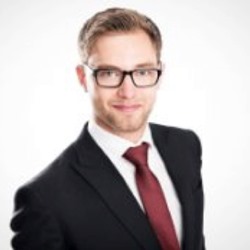
Lukas Decker
MSc International Management / CEMS MIM '12
CEO at Coindrum
"The CEMS MIM at UCD Smurfit School has been an intensive and valuable experience on both a personal and professional level. I was very much able to appreciate the benefits that the course offered - a group of like-minded and ambitious students from all over the world created a culture of mutual reinforcement and openmindedness. The environment was challenging and demanded engagement in academic business topics, internships and practical business projects. Professional skill development such as presentation skills and negotiation skills were also part of a steep learning curve. The latter was one factor in my decision to found my company, Coindrum, which quickly proceeded to receive angel investment by a major industry player."
Dónal O’Sullivan
MAcc '09
M&A Director at Eli Global
Focused on maximising his time and talents, Dónal O’Sullivan completed his apprenticeship at KPMG in 2012 and is now mergers and acquisitions director at Eli Global, where he is responsible for all non-US M&A activity in a dynamic and rapidly expanding group that now comprises over 40 independent business units.
Tell us a bit about your educational background
I started off in Coláiste Eoin, where I learnt everything through Irish, and then went to UCD to study economics and finance. After that, I went to UCD Smurfit School, primarily because I graduated in 2008 during the financial crisis, so there were very few roles available within what I wanted to do. My sister had been working in KPMG and suggested that I follow her route. Luckily KPMG sponsored me to do the masters of accounting programme and I had one of the best years of my life in there!
What were your first few jobs?
Part of the deal with KPMG is that you sign to work with them for three years, which was a really good apprenticeship.
My time there opened my eyes to real world commerce and real business. I started getting really involved and interested in mergers and acquisitions. Whenever I opened a newspaper, it was the first thing I read about. I realised very quickly it was exactly what I wanted to get into. After my apprenticeship I went to London in 2012 and tried to break into the scene there.
I only actually ended up in London for two weeks because soon after I arrived I heard there was an M&A role going in Raglan Capital, a very niche, boutique corporate finance provider in Dublin. Luckily enough, I got the job and worked in Raglan Capital under Cathal Friel’s watchful eye, learning a significant amount from him.
I was predominantly working on M&A mandates, usually selling great Irish businesses to international buyers. The types of businesses we dealt with and advised from a corporate finance perspective were very varied, and included a lot of technology businesses. That really opened my eyes towards the world of technology and hence where I am today.
And what is your current role?
I’ve been with Eli Global for three years now and it’s been a fantastic opportunity and a great business to work for. They’re very dynamic in the way they think about things. They came to me and said: Here’s a blank piece of paper – go create some havoc.
I had been with Raglan Capital for just over a year. We had been getting more involved in the oil and gas business and I felt more interested in advising technology businesses on mergers and acquisitions or different corporate finance type mandates. Having been offered the opportunity to really put a stamp on something and make it my own by the guys in Eli Global, I couldn’t turn it down.
Over the past three years, I’ve completed 10 acquisitions of highly synergistic businesses within our existing group, which has resulted in a very successful business that now employs close to 300 in Ireland and the UK. So, it’s a fantastic story having been the first person outside of the US representing our business. I’m very proud of that.
Clanwilliam Group was established in September 2014 by myself and Howard Beggs, the CEO of Helix Health, and also Greg Lindberg, chairman of Eli Global, to effect the transactions we completed on the same day, which were Helix Health and Socrates Healthcare.
Eli Global is the majority shareholder of the Clanwilliam Group.
What does your role involve now?
I have many hats as I think all leaders in organisations need to have. My main focus is working with my international M&A team (which currently comprises 14 M&A professionals based in Ireland, the UK, across Europe and Australia) to execute highly strategic acquisitions on behalf of different CEOs within the Eli Global group. We identify good solid businesses that will be around for a long time (our business has a 30 year long-term growth plan), inform them as to the benefits of joining our group of entrepreneurs, and negotiate terms to ensure a successful outcome for both Eli Global and the sellers on a worldwide basis.
The second part of my role is growing the Clanwilliam Group, both organically – dealing with each of the management teams in driving strategies that will assist us from a marketing, product innovation and customer service perspective – and also through acquisition. We’ve just completed a number of acquisitions that are highly synergistic within the Clanwilliam Group alone, and we are currently in the midst of a number of others as well. So it’s quite an exciting time and we look forward to the next stage of our expansion, in Ireland, the UK and further afield.
Tell us a bit about your leadership style
I think it’s evolving all the time. I’m continuously learning and making mistakes and I think that’s the only way to realise what kind of leader you are and to grow internally. At this point in time, I would say it’s more of a trust approach, whereas previously with different teams in the organisation I have been more hands-on on a day-to-day basis. But having been involved with them now for over two years, I’m stepping back more and more and trusting them and empowering others to make their own mistakes and to learn from those mistakes.
It’s very important in coaching and mentoring different employees and members of staff to keep them engaged and interested in what they’re doing. The second people lose interest or aren’t really keen on what they’re doing is the first time you really see a big difference in their output. I really do try to put people in positions that are outside of their comfort zone and to give them the responsibility of making decisions that have a big impact on the outcome of our work. I think that’s the best way to learn.
Do you have a business or life philosophy?
I very much focus on the good parts of life. I think it’s very important to have a good work life balance. I think people who leave on time and who are very efficient with their time are usually far better at their jobs than guys who are constantly in the office. Driving efficiency in business and in life is something I would certainly stand by. I try to get the most out of each day – to get up with the sun and go down hopefully not too long after the sun sets. During the middle of the day, where possible, I take time to go for a run or do some exercises because I think it’s important to be able to switch off as well and just really to enjoy life. We only get one so it’s important to make the most of it.
Who or what are your influences?
I would have to say the key influence in my life has always been my mother. She’s one of the most intelligent, hardworking people I have ever met. She’s an inspiration to me, day in and day out. I’d extend that to my father as well. The upbringing they provided my sister and me with was really second to none. They gave us all the opportunities, even if they had to work two or three jobs each to provide us with those. I’m a very, very lucky person and I do try to help as many people as possible because of that, in business and also in personal life.
What are your tips and advice for success?
I think people underestimate the simple things in life, not just in business. Being a nice person to deal with always goes a very long way. There are numerous things people can do to make themselves stand out that do not relate to their specific competency in the role they’re carrying out: simple things like smiling, being happy, having a good attitude for what it is you’re doing, being on time, talking appropriately with others at all times. They’re really simple things that can go a long way but that people do really lose sight of.
The biggest point for me looking at my parents’ experience is that hard work is really the cornerstone of any successful career. From my perspective, you can be as intelligent as you want but without applying yourself I just don’t see how you can grow to your full potential.
What has your biggest success to date been?
I think where I am at the moment and what I’ve achieved with Eli Global over the last three years is probably the biggest success to date. To think that only a few years ago I finished my traineeship with KPMG and now I’m walking into an office with 300 employees – that level of responsibility takes me aback sometimes.
Any failures you want to share?
I don’t see anything as being a failure really. I watched one of the Collison brothers on the Late Late Show about five years ago and he’d just come back from San Francisco. He said, people in the United States are so proud of failures. In Silicon Valley guys can fail with five or six start-ups and then finally strike gold on their seventh. I think his point was in Ireland we see failure as something we should be ashamed of. We really should change our mentality when it comes to talking about failure. I’ve learnt from things that haven’t succeeded, I’ve dusted myself off and I’ve grown and learnt from them. And hopefully I won’t do any of them again.
Do you have plans for the future within Eli Global or outside of it?
The sky’s the limit with Eli Global at the moment. We are growing at a significantly fast rate. I could not even dream of leaving. The opportunity there to eventually be running a business with thousands of employees is something that really excites me. I can’t see there being any plans to change things, at this point in time anyway.
Insight Track
What are your interests outside work?
I love every sport, and not even just sport – any type of competition. I’m quite a competitive person in everything I try my hand at, while having as much fun as I can. You have to really enjoy what you’re doing. I play a lot of golf. I am very much into my fitness: I run, swim and cycle quite a lot. Over the years, I’ve played many different sports – GAA, hurling, football, soccer and rugby.
I’m also very much into music. I am in a rock band that I play drums and sing in, which is a great outlet for me. And up until quite recently I sang in a choir as well. I very much enjoy all types of music.
How has your degree benefited your career and/or personal life?
Both my undergraduate degree in economics and finance and my postgraduate degree in the masters of accounting have provided me with both a group of great lifelong friends and the knowledge and skills to progress my career successfully to date.
What piece of technology can you not live without?
I’m afraid my smart phone is something I struggle to do without.
What is your favourite band or musician?
I am a huge Beatles fan!
What’s the last gig/play/film/exhibition you went to that you loved?
My girlfriend planned a surprise trip to the Cavern in Liverpool for my birthday recently which was phenomenal.
What is your favourite place in the world to visit and why?
I love New Zealand – I have been there twice now and the landscape is just so breathtaking. Hopefully I’ll be back for the Lions tour in June!
Name three things on your bucket list
Travel to as many countries as possible across the world
Travel to space – hopefully Virgin Galactic etc. will be more affordable in years to come!
Win the father and son golf competition in the Castle!
What charities or causes are closest to your heart?
Both the Samaritans and the Alzheimer Society of Ireland are great charities that provide much needed support to those dealing with depression/mental illnesses and dementia respectively. These are two areas that I feel very passionate about.
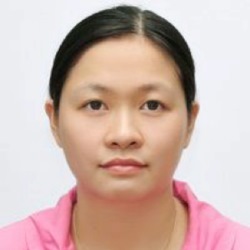
Vu Kim Hue
MSc Strategic Management and Planning '14
National Project Officer at ILO
"One year studying at UCD Smurfit School was the most amazing year of my life. The excellent academic environment makes students feel comfortable to enhance their knowledge, skills and personalities. I had opportunities to be actively involved in not only the lectures, but also dynamic cultural and sport activities during the school year. The course undeniably enabled me to have a comprehensive approach to problems at work and more assurance to accomplish my professional goals. I would recommend the MSc Strategic Management & Planning course and UCD Smurfit School."
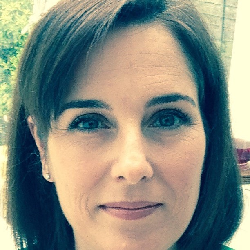
Jennifer Geary
MAcc '97
Author of "How to be a Chief Operating Officer"
Tell us a bit about your education and early career
I went to UCD to do a BComm followed by a MAcc at the Smurfit Business School. From there I joined Arthur Andersen from the milk round. Just before joining, I questioned if financial audit was the direction I really wanted, but the partner who recruited me offered me the opportunity to work in technology risk alongside mainstream financial audit. It turned out to be a great choice that paved the road for me to go into broader operational rather than pure financial roles.
After three years, I qualified with Andersen in Dublin. I had itchy feet and my then boyfriend (now husband) and I decided we wanted some overseas experience. He also worked in financial services and had an opportunity in New York. I was able to move there with Andersen.
It was an experience of two halves, because it was bisected by 9/11. For my first engagement with Andersen, I was working with Goldman Sachs on Wall Street and my office overlooked the South Street Seaport. I couldn’t believe I was being paid to be there! Our apartment looked across at the Twin Towers and the Empire State Building and it was an amazing experience. In the second year, 9/11 occurred which was incredibly traumatic for New York. And then Arthur Andersen collapsed following the Enron scandal.
That was an inflection point for my husband and me. We had the option to go back to Dublin but London seemed right – it was still a big financial centre and was just 45 minutes from home. Like so many Irish people, we said “We’ll give it two years”, which was 15 years ago now! I joined Barclays and spent 13 years there in a range of roles. The first five years were in the investment bank and then i moved into wealth management in 2007. For the last three years I was chief of staff to the group general counsel. My roles covered risk, technology and legal, as well as a finance element.
Tell us about your most recent roles
I had started to become quite passionately engaged in Barclays’ citizenship agenda and wanted to seek out a non-executive director position in a charity to bolster that interest. I was introduced to Save the Children and they contacted me to say they had a much more pressing need - they needed an interim chief operating officer.
I convinced Barclays to second me to Save the Children for nine months. When that period ended, I was asked to stay in a permanent capacity. I stayed there for two and a half years during a hectic, rewarding period as we devised the strategy for the organisation out to 2030 and built platforms in finance, HR and IT to make the organisation fit for the future. I feel very proud of my contribution during that time.
Although I had a broad operational background, I found my first COO role challenging – the range of disciplines that are needed is so wide. I wondered why, in contrast to the CEO or CFO role, so little had been written about the role of COO to help prepare new leaders. I had an aspiration at the back of my mind to write a book and thought if I didn’t do it now, I’ll never do it. So I decided to take a few months to commit all I had learned to paper.
For the early part of the year I was absolutely focused on the book. I treated it like a job and was at my desk at 08.30 each morning, writing, reading, researching and checking references. The e-book launched at the beginning of July and I have been delighted with how it has been received. I even got a message from a CEO of a university in Senegal telling me how much it had helped her! Now the paperback is out, and a consultancy even wants to turn my content into a training course, which is hugely exciting.
How would you describe your leadership style?
Delivery with humanity. You can have a relentless focus on execution, but temper it by caring about your people, their goals and their lives. When I moved from a hard-driving City financial services environment to a not-for-profit organisation, I realised the traditional levers of influence like money and promotion no longer worked – you had to win people over with your vision and engage them in a dialogue to foster genuine buy-in.
What motivates you?
Joining up social good with private sector drive to make change in the world. In Save the Children, we incubated a number of new organisations and I find it really interesting to have the start-up accelerator mentality in a humanitarian organisation. I’m very interested in the idea of taking the accelerator approach and applying it to some of the world’s biggest problems.
Who or what has influenced or inspired you?
Irish people speaking out on the global stage is very inspiring. Whether it’s Mary Robinson on human rights, Clare Gilmartin (CEO of Trainline.com) in the tech and business world, Pamela Murphy (Infor COO) thriving in Silicon Valley, or Andrew Scott treading the boards in the West End and doing Shakespeare in an unadulterated Irish accent. I love how we Irish punch above our weight as a nation.
What do you feel has been your biggest achievement to date and are there any failures you’d like to share?
My book is obviously an achievement I’m proud of. Other big achievements include my two and a half years helping Save the Children UK define its strategy for the next 15 years, and also seeing the impact we have on the ground, and helping Barclays launch its citizenship agenda, putting social good at the core of what it’s about.
Equally, I’ve witnessed some tumultuous times – the collapse of Andersen was a key moment. On a personal level, I wish I had spent more time on the people elements of change in Save the Children – there was such a lot of change going on and people needed more support and guidance to help them embrace new initiatives such as agile working.
What are your tips and advice for success?
It’s all about the relationships. I was quite transactional and maniacally execution-focused in my earlier career. Now, I understand it’s the relationships that persist. Maya Angelou said: “People will forget what you said. People will forget what you did. But people will never forget how you made them feel.” That’s a really important lesson.
Any plans for the future that you want to share?
After 20 years of hard-driving work, I am really enjoying the interlude of stepping back and writing my book. However, I’m not done yet! I’m looking forward to getting back into an operational role – but only for the right opportunity.
What are your main interests outside work?
Apart from running around after kids? I have picked up surfing late in life. I’m bad but I love it. That and yoga. My husband and I still love to travel when we can. Fortunately our kids are excellent travellers too.
Insight Track
How important is your UCD alumni network to you?
Thanks to David O’Reilly and the team in London, I have recently become reacquainted with the alumni network in London and I have genuinely enjoyed it.
Tell us one thing that most people don’t know about you
I sing in a choir – it’s one of the best diversions for the brain.
What’s the last play you went to that you loved?
Andrew Scott playing Hamlet.
What team do you support?
We live around the corner from Crystal Palace football ground, so they’re our team now!
What is your favourite place in the world to visit and why?
Still New York. Standing in the centre of Grand Central Station is my favourite place in the world.
Where do you go to completely unwind?
The beach! Brittas Bay at home and West Wittering in the UK.
What’s the best thing about living in London?
The freshness – something new is always happening. That and Borough Market. And Shoreditch. And the theatres and restaurants. I could go on…
What charities or causes are closest to your heart?
Save the Children – obviously! And I’m now a trustee of Child’s I Foundation – a wonderful charity, run by an English woman and based in Uganda, whose mission is to get children out of orphanages and back into loving families.
Jennifer Geary’s book How to be a Chief Operating Officer is now available in paperback on Amazon.
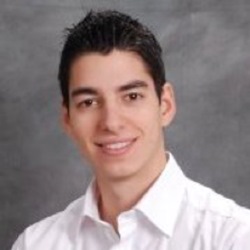
Peter Gila
MSc International Management / CEMS MI '11
Manager at Deutschothek Sprachschule
"After my bachelor’s degree, which I completed in Vienna and Moscow, I wanted to pursue an international Masters degree in an English-speaking country. The decision to choose the CEMS MiM course at UCD Smurfit School is one of the best decisions I have made; not only due to the high quality of the courses, but also due to the excellent networking opportunities with company representatives and students from all over Europe and beyond. CEMS MiM at UCD Smurfit School offers a well-balanced combination of theoretical modules, practical courses and skill seminars, which were excellent preparation for my career. I recommend the CEMS MiM degree to anyone who is looking for a high-quality degree in management and would like to work internationally."
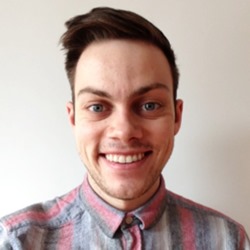
Conor Breen
MSc Management '14
Global Brand Manager at Chivas Brothers Pernod Ricard
"UCD Smurfit School put me on the career path that I wanted to be on. I had obtained an undergraduate Law Degree but wanted to pursue a career in a business setting. The MSc in Management provided the platform for me to begin my first steps into the commercial sphere. The masters taught me how to identify and solve business problems in local and international settings. It enhanced my interpersonal and communication skills, skills that are now an important part of my day-to-day working life. There was a huge focus on teamwork and I enjoyed the opportunity to work with people from different cultures and varying backgrounds. The knowledge you attain at UCD Smurfit School is not left at the gates of Carysfort, it is something you take with you and can bring to any corner of the world. I currently work for Chivas Brothers Pernod Ricard as Global Brand Manager in London."
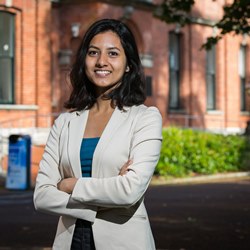
Kavya Ramesh
MSc Marketing '17
"I chose to study at UCD Smurfit School, as the course curriculum offered a hands-on learning approach through practical applications of theories taught in class. Also, the opportunity to do live projects with renowned companies provide to be an invaluable experience."
-1.jpg)
Vivian Pucher Pucher
MSc Strategic Management and Planning '16
Associate Account Strategist Google
Always keen to have positive impact and step outside her comfort zone, Vivian Pucher left her native Germany to spend six months volunteering in a women’s cooperative in Guatamala at the age of just 18. Six years on and she’s working at Google in Dublin and a member of the Seachange Foundation board, as well as planning a triathlon and a stint in Tanzania working with entrepreneurs.
Tell us a bit about your education and career to date
I grew up in the German Black Forest and after graduating from high school there wanted to see a bit of the world so I went to Guatemala for half a year to work in a cooperative of Mayan women. There I realised that nobody – including me, of course – had any idea how to run an organisation and that’s why I decided to study business. Because I’d learnt Spanish in Guatemala I went for a double degree between ESB Business School at Reutlingen University in Germany and Universidad Pontificia Comillas in Madrid. After graduating in 2015, I went on to do my master’s in strategic management at Smurfit.
During my studies I did several internships in consulting and in the automotive sector as well as working for a start-up. Besides that I have always been very involved in university initiatives and did a lot of voluntary work. For example, during my time at Smurfit, I did a project on social impact measurement in Gujarat (India) with Shanti Life India Foundation, a microfinance organisation focusing on empowering women through business and sanitation loans. I am also now on the board of Seachange Foundation, a partner organisation of Shanti Life based here in Dublin.
Tell us about your role in Google
Last November, I joined the sales department in Google in Dublin where I am an account strategist. This involves working with small and medium-sized enterprises in Germany on how they can grow their businesses nationally and internationally with online marketing. It’s a fantastic team and I get to work with very smart people.
How do you feel your degree at UCD has benefited you most?
I think there are two dimensions to what I got out of my time at Smurfit. One of those is the personal side. In Smurfit I really made friends with people from all over the world. It always sounds so simple but I think we underestimate a lot those cultural differences between people. I learnt an incredible amount about working with very different cultures. On the other hand, content wise we learnt about many concepts that I wasn’t really aware of during my primary degree. I sometimes wondered why on earth we would learn this in strategy management. Now, being in the corporate world I see it all the time and remember back. It really turned out to be very useful for me in terms of being able to see the bigger picture.
What motivates you?
I think what motivates me most is to have an impact in a positive way and to be able to see what my work has done. In my current work, making clients happy is really motivating for me. So, it’s really about positive change.
What are your career goals?
I have a mid-term plan and a longer term plan. I have done a lot of consulting, working on very strict business projects, and also NGO work and I would like to combine the two in the future. I would like to work more on the social side of business and that could be within Google or somewhere else. In the long term, I would like to return to university some day and share my experience. I could really see myself going back to academia... but that’s far away!
What for you is good leadership?
I think it depends a lot on the stage an organisation is at, but ultimately I would define it as being inspiring, having strong values and allowing your people to take risks and to think big. It’s not about showing what to do but more about showing what we are doing something for.
I have led projects in the past but haven’t yet been a leader professionally, but I think that’s the kind of leader I wish to become one day.
Who or what influences and inspires you?
I read recently that you are mostly influenced by the five closest people around you. Hence, I have been influenced a lot by my family and close friends. Nevertheless, when you move places a lot, also the people around you change. So it’s always shifting a bit and I see myself changing with it. So I’m probably really the cross sum of all the people that are close to me.
In terms of inspiration it’s a bit different. I’m really inspired by people who have strong ethical values and clearly stick to them. I’m inspired and interested by people who dedicate their lives to something amazing but manage to do so in a selfless manner. One, but certainly not the only, example would be Sheetal Walsh who I mentioned earlier. She is incredibly successful from a business point of view but still dedicates a huge part of her time to run a charity.
What achievement stands out for you so far?
Probably it’s the time I spent in Guatemala. I went there when I was 18 years old and spent six months in a mud hut. It was a very tough time. Since then, whenever things are getting difficult I always remind myself that I was able to do that at such a young age and that the challenge I’m facing now is not so big compared to it and I can probably achieve so much more. So, I always use it as my anchor point to put things into perspective.
Are there any failures you’ve learnt from?
Primarily my plan was to not even do a master’s degree but rather to start working right away. But I honestly failed at getting the job I really wanted straight after my primary degree. I was probably overconfident in what I had achieved and after I got rejected my whole self confidence broke down. Now I think it’s the best thing that could have happened to me. It was a really good learning that when something doesn’t work out the way it was supposed to then another door opens. Hence, I learned to move on and look forward.
What are your tips or advice for success?
It might sound extremely naive but the thing that I benefited from the most and that I try to continue doing, is to say “yes” as much as possible. I try to embrace any opportunity that crosses my way. I think it’s better to have a bit too much on your plate than just staying inside your comfort zone. And I’ve always benefited in some way from the additional experience I have gained from just saying, “yes, sure, I will give it a try”.
Any immediate plans for the future you’d like to talk about?
For now, I’ll try to move on in my current workplace and will continue the work I’m doing with Seachange and Shanti Life. I’m also going to Tanzania for two weeks this summer with Google, working with entrepreneurs there. And I’d like to do a triathlon – that’s actually another point on my list for this year!
What are your main interests outside work?
I really like to do sports and I also love to travel. And I enjoy reading and I have just started painting recently.
Insight Track
How important is your UCD alumni network to you?
So far it has been extremely helpful for having lovely friends in Asia when travelling there. But at the same time I see them all getting into great work positions, so also from a professional aspect I’m sure we’ll benefit a lot from our connections in the future.
Tell us one thing most people don’t know about you
Unfortunately I’m very chaotic and even more unfortunately I’m allergic to mangoes.
What is your pet hate?
People walking super slow in front of me – I love being lazy but I hate to waste time unnecessarily.
Who’s your favourite writer?
Paulo Coelho has been extremely inspiring to me.
And what is your favourite band or musician?
It’s mainly one song that always gets me into an extremely happy mood: Golden Age (The Asteroids Galaxy Tour).
What’s the last gig you went to that you loved?
I went to a jazz concert by Christian Scott (my first one ever) two weeks ago and it was absolutely amazing.
What is your favourite dish to cook?
I always like to cook exotic things I’ve never made before. And even more if they are really spicy.
What is your favourite place in the world to visit and why?
Freudenstadt (which actually translates to happy town) in the Black Forest...because there is no place like home.
Name three things on your bucket list
Run a marathon, be published somewhere and speak five languages fluently.
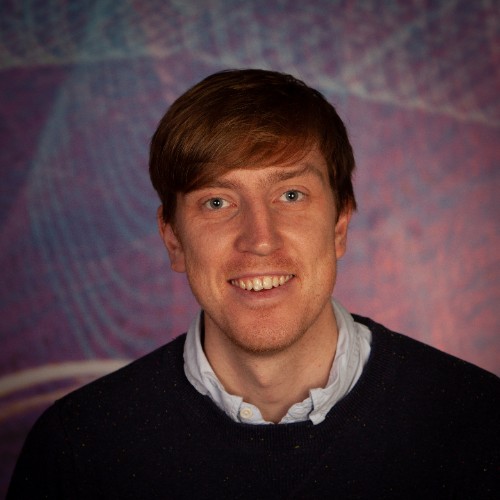
David Scott-Lennon
MSc Marketing Practice ’14
Group Client Director at PHD Media Ireland
My college career started at UCD where I studied Economics and Politics as my undergraduate degree. Then, I wasn’t really sure what I wanted to do in terms of my next step so thought the best thing to do would be a Master's degree. I looked around at various options from management consultancy to business management and one of the ones that stood out for me was the Masters in Marketing Practice in Smurfit School.
That was an unbelievable learning experience in terms of working in a work environment and working on real client campaigns whilst also studying the various elements of marketing. Within this we touched on many marketing elements from social media management to research and marketing strategies.
Coming out from that I had a loan to repay and needed a job. I secured a role in Mindshare, which is a media agency, trying cut my teeth in that industry and figuring out what it entails. I got great experience for two years working as an account executive. Then, at the beginning of 2015 I was offered a role at OMD – another media agency and part of Omnicom Media Group – as account manager.
I took a career break at the beginning of 2020 before Covid hit to go travelling and signed a contract to come back in April. I was promoted to Group Client Director so it’s been a massive learning experience for me over the past year – not only taking on the new role but also having to do it in a pandemic where all communication with your team is over a videoconferencing call. It has been a challenge but one I have thoroughly enjoyed.
I think from a personal perspective, I am proud of how I have progressed my career to date is and this is probably my biggest achievement. It’s no easy feat to be a Group Client Director at the age of 29. I’ve done a lot of work and worked closely with people at senior levels within the agencies to help me learn and grow to get there.
A lot of people who come into their first or even their second job are worried about being perceived as asking too many questions. One of the things I was always told is that no question is a stupid question. So I always tell people starting in a new role to look up and ask questions. Learn about the company and all its different elements as quickly as you can. If you’re new in, start talking to the various departments, find out what they do, understand the elements within them and always ask questions. You’ll never learn the ins and outs of a business until you ask questions of the right people. And to do that you have to get to know them first.
Also, if you’re looking to move up in your career, always look at the next step and what you need to do to get there. Always be driving yourself forward. If you’re starting a job, think about what you need to do to be really proficient in the current role, so you’ll be considered for the next role. Some of my biggest learnings came in my Master's Degree and that set me up well for the working world. More importantly, I also met some of my best friends during my Master's.
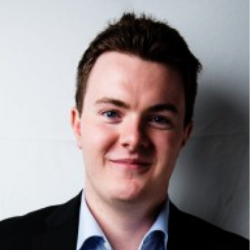
Brandon Sharkey
MSc Aviation Finance '20
Trading Associate, Aviation Finance at Standard Chartered
"The MSc in Aviation Finance has enabled me with both the knowledge and the skillset to secure a role at one of the world’s leading aircraft lessors. The academic staff have an abundance of industry experience and I would highly recommend the course to those looking to break into what is one of Ireland’s most dynamic and successful industries."
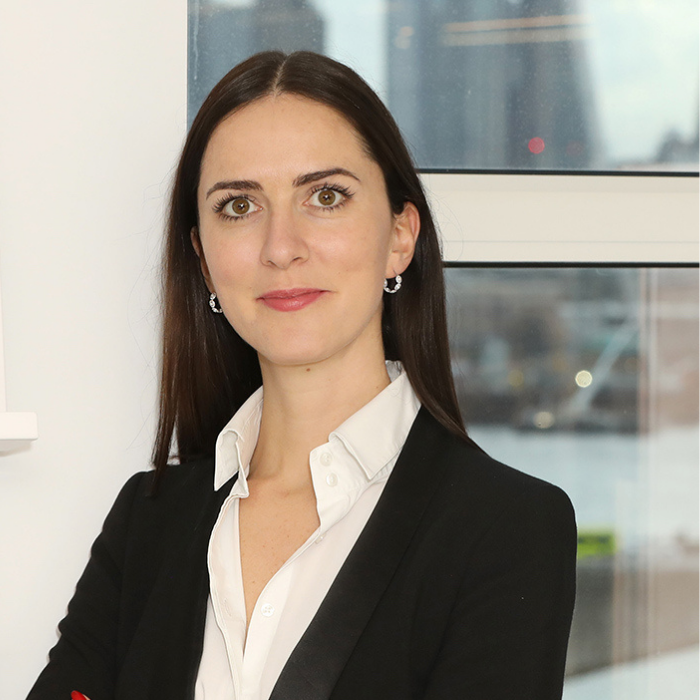
Ciara Byrne
MSc Management ’08
Director of New Business Innovation in Condé Nast
Motivated by new challenges, solving problems and progressing solutions, Ciara Byrne is in the perfect role as director of new business innovation in Condé Nast, where she is based in London and leads an international team in diversifying revenue opportunities at the media giant.
Tell us a bit about your education and early career
After school in Mount Anville I had no idea what to do so followed in the footsteps of a lot of my siblings – I’m the youngest of eight – and did an arts degree. I studied philosophy and English in UCD, which exposed me to many different ideas. During that time I studied philosophy in the Sorbonne Paris for a year, which was extremely challenging with my Leaving Cert French but the best opportunity.
All through school and college I also studied piano and I finished with a degree in piano performance from the London College of Music. For a time I wasn’t sure if I wanted to make that my career or not but realised it wasn’t right for me.
Coming out with degrees in Philosophy and English and Music, you don’t exactly have people banging on the door to employ you so I did a master’s in Management at Smurfit. That gave me a comprehensive deep dive into so many different areas and made me a lot more hireable.
In 2007 and 2008 there weren’t many job opportunities when I was coming out of university but I ended up getting onto a graduate programme in Tourism Ireland through Ibec and spent a year in Brussels. Then I got a job back in Ireland in Google on the account strategist agency team. That was the dream first job – they spend so much time investing in their people. I spent five years there, moved to London and ended up as DoubleClick sales director.
I left Google to join Condé Nast in 2015. Google was such a fantastic place to work and there was a lot of opportunity but I wanted to broaden my horizons again. I was initially involved in launching a new business for Condé Nast Britain. I then became director of strategic initiatives and subsequently director of new business innovation.
What is your role now?
Since 2018 I have been director of new business innovation in Condé Nast. I lead an international team to drive innovation projects focused on diversifying Condé Nast’s revenue away from advertising.
Condé Nast publishes across 32 markets and we have lots of different types of brands, from Vogue to Wired and GQ to Vanity Fair. My team is spread across the US, Europe and China and is responsible for growing new businesses for those brands across all of these regions.
We look for opportunities, assess them and then potentially develop new businesses. These opportunities all have very different business models, from membership to data and insights – for example, we launched data and insight products for Vogue under the Vogue Business brand.
We evaluate new opportunities using a framework we created that brings in design thinking, product development and agile delivery. The objective is to assess whether or not an opportunity is interesting as quickly as possible using as few resources as possible. Once we feel we’re on to something, we incubate the idea. Then, if the idea is validated – so we know customers want it, that we can operate this type of business and that we’ll make money from it – we focus on launching it and bringing it back inside the engine of the business.
What motivates you?
Very early in my career it was probably the standard things of titles and salaries but I quickly realised that what really excites me is a challenge. Doing things I have no experience in, interpreting and unravelling problems, making sense of them and progressing forward is what I love doing. It means that the moment you have the hang of something you are moving on to the next thing.
How would you describe your leadership style?
I try to lead in the way I like to be led. I like to give my teams a sense of autonomy – let them know they’re trusted and ensure they’re supported, both professionally and personally. When someone joins my team I try to spend a lot of time with them initially to make sure they understand what our team culture is and what we’re aiming to achieve. And I’ll encourage them to trust their own judgement.
Who has influenced or inspired you?
I have had some fantastic managers and mentors throughout my career; generally I choose roles based on the people I will work with or for as opposed to the jobs. But more recently, it was my last manager who was the president of Condé Nast and an incredible leader: endlessly curious, very smart and really empathetic too. He was extremely transparent and trusted people he worked with. He recently left the company but he left an indelible impression.
What’s your proudest achievement?
The thing I’m most proud of is launching Vogue Business two and a half years ago. It was a very different business model for Condé Nast – entering into the B2B space of enterprise data and insight solutions – and a very different editorial mission as well. While most of our brands are aimed at consumers, it’s for industry professionals. It came with a lot of risk and we had to look at it from every angle to ensure we were not exposing the business. We launched that initially in English for a global audience and then launched Vogue Business in China in Mandarin as well.
Nothing I could done before could have prepared me for launching a brand from scratch. And the fact that it had Vogue in its title also brought its own complexity.
What’s your attitude towards failure?
Failure is an essential part of experimentation and of trying new things – as Einstein said “Failure is success in progress” The key is to not shy away from it. Naturally you will want to land on successful ideas and businesses, but being open to it allows you to be more curious and playful with your approach to launching new businesses. We try to learn from any setback or failure as quickly as we can and move on with that learning under our belts.
What are your tips and advice for success?
One of the things I say a lot is: “Fail to prepare, prepare to fail”. And there’s that Seneca quote: “Luck is what happens when preparation meets opportunity”. So, try to be as prepared as you possibly can be in any given situation.
But in terms of the advice I give most, it’s probably, “No one will ever care for your career as much as you will”. It’s your responsibility to nurture and care for it and to really map things out and adapt your career for the stage of life you’re in. You can’t expect a manager, coach, mentor or HR to be able to do this for you. They might be able to help you get to where you want to go but you have to know where that is.
What are your plans for the future?
At the moment, we have our hands full with the projects we’re running to launch new B2B and B2C businesses for Condé Nast. We’re running some really interesting and challenging projects and I’m certainly happy where I am now.
Through Vogue Business I’ve been exposed to areas of sustainability, not just within fashion but regarding water usage and waste management as a whole, and I’m really passionate about bringing businesses and sustainability further together and demonstrating how sustainability is good for the bottom line. That’s an area I’d like to be involved in more going forward.
Insight Track
How has your degree benefited your career?
I had such a varied education up to the point I joined Smurfit so studying an MA in management gave me a stamp of hireability. It also allowed me to have a comprehensive understanding and deep dive into business management within a relatively short period of time. And there isn’t a week that goes by I don’t use the accounting skills I learnt from Smurfit.
What is your fondest memory from your time in UCD Smurfit School?
I am lucky to say there are many, but probably the highlight was when a group of us travelled to North Carolina, to play Duke University in tag rugby. We got to visit their campus and get to know the students there.
May 2021

Jeet Kashyap
MSc Digital Innovation '20
Associate Manager at Accenture UK
"This course is a unique combination of modules covering business fundamentals along with extensive coverage of trends and developments in the ICT industry. It definitely helps individuals to develop outlook and knowledge to strategise, manage and deliver transformation and innovation in an ever-changing digital landscape."
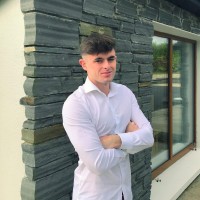
Emmet Daniels
MSc Marketing Practice '20
Growth Specialist at HubSpot
"The MDP was the perfect stepping stone between university and the workplace. The one-to-one coaching, office environment and real-world experience working with clients all made for an incredibly immersive learning experience. However, the value of the MDP goes far beyond what you learn in the classroom. I graduated from the MDP more confident, professional and self-aware, which allowed me to hit the ground running in the workplace. I also left with some friends for life!"
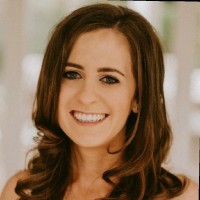
Victoria O’Gorman
MAcc '14
Senior Financial Analyst at CRH
"I chose to do the MAcc at UCD Smurfit School due to its reputation for best in class lecturers, global ranking and triple accreditation. As barriers continue to dissipate in the global business network, studying in a school of business with an international reputation was highly appealing. The MAcc extended beyond theoretical based learning to an interactive environment where we were encouraged to actively participate in problem solving by applying our technical knowledge to real life practical examples."
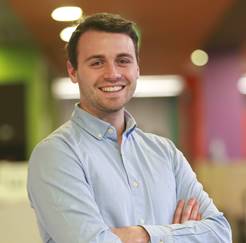
Leopold Duchateau
MSc International Management / CEMS MiM
Account Executive at MongoDB
"After having finished my Bachelor’s degree in International Business from Grenoble École de Management in France, I wanted to gain a more thorough knowledge of management in a business school with an excellent reputation, great international exposure and which would open doors for me in the tech industry.
That is why I chose to do the CEMS Masters in International Management at UCD Michael Smurfit Graduate Business School to acquire new attributes through the combination of practical experience with world-renowned business partners and top-class teaching. As part of the curriculum, I had the chance to spend a semester abroad in Australia, where I was able to further develop my cross-cultural management skills and create a global network of friends and professional contacts. The seminars and company visits organised by UCD most definitely helped me to have a better understanding of the business world and to secure a job."
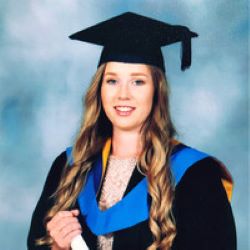
Romy Bolger
MSc Food Business Strategy '19
Brand Marketing Executive at Arvum Group
"The MSc in Food Business Strategy gave me a theoretical and practical insight into global issues facing the food sector and the diversity within the Masters led me to discover my passion for marketing within the agri-food sector. The content is built around real life challenges and ideas, utilising case studies and guest presentations to bring industry into the classroom. The capstone project completed over two semesters has become a focal point in interviews I have done since completing my studies. This marketing project gave me the confidence I needed to focus my career in the area. I highly recommend this degree to anyone looking to benefit from a well-rounded curriculum, industry lecturers, and a uniquely diverse environment."
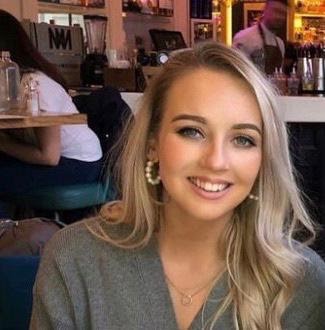
Leah Bashford
MSc Marketing Practice '20
Junior Brand Manager at Danone
"My year as a marketing advisor is something I will never forget. I came away with invaluable skills and experience, a greater knowledge of marketing from putting theory into practice and gaining real experience working alongside clients. I am grateful for the memories, friendships and relationships I have built and the guidance and support from top class lecturers and industry-expert managers."
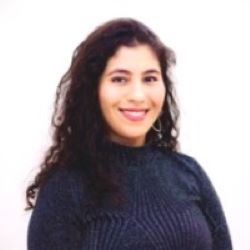
Soufana Al Fathil
MSc International Business '20
Business Development Representative at Salesforce
"My time at Smurfit and in the MSc International Business programme really gave me the foundations for an exciting career in Business Development. The modules that were taught across the three semesters broadened my horizons in relation to the latest updates in the world of business and gave me the tools to analyse and understand the changes around us. One of my favorite modules was Cross Cultural Management, where our professor really stressed the importance of the society we lived in and all the underlying behaviors that make up each of our personalities and how we interact in a global environment. This really helped me understand my global cohort better and has helped tremendously when I speak to my customers across the Emerging Market region. I definitely recommend this course as it has allowed me to develop as a person, network with some of the top companies all over the world and put me in touch with some of my closest friends."
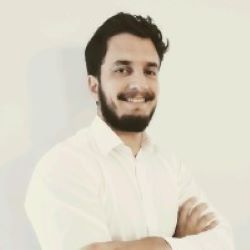
Flippo Carli
MSc International Business '20
Account Executive at Datadog
"The MSc International Business gave me the possibility to understand international firms’ best practices to gain competitive advantage. I particularly appreciated its holistic and practical approach. Not only I had chance to work in project groups with people from all around the world, but I could also get in contact with multinational companies headquartered in Dublin. This combination is the key if you are eager to kick off your international career. I was part of a great group of friends and today we are all working for big corporates. If I look back, my experience in the MSc International Business was more than positive."

Ekaterina Sarapulova
MSc Digital Marketing '20
Performance Marketing Analyst at 2K Games
"The MSc Digital Marketing course at UCD Smurfit School provided me with a fundamental set of critical thinking and analytical skills to fulfil my current role. The practical element of the final project acted as a superb alternative to years of experience often demanded from graduates in our field. During the project, I exercised my skills of market research, digital strategy, branding, analytics and SEO that I acquired earlier throughout the year while also expanding my network of connections in the professional landscape."
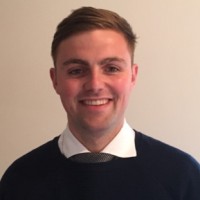
Shane Hickey
MSc Business Analytics ‘18
Senior Data Scientist at daa
"The MSc in Business Analytics gives a solid theoretical foundational in analytical and statistical theory, as well as equipping students with the necessary soft skills to ensure maximum impact in the workplace. Throughout the course, I had various opportunities to interact directly with leading analytics companies in Ireland, culminating in the capstone project which I did in conjunction with AIB. The mix of technical, soft, and professional skills I learned in the course allowed me to hit the ground running when starting off my career in analytics."

Umme Hani
MSc Management '20
Global Supply Chain Analyst at Abbott Diagnostic
"The MSc in Management course gives a solid theoretical foundation with an overview of different disciplines in management studies. With a non-business background and desire to maneuver my career trajectory, this course assisted me to leverage on a field of interest while I worked around everything from economics, accounts, to supply chain and marketing. Throughout the course, I had various assignments to evaluate and interact with real-time company data whilst recommending insights on the subject. Moreover, in the final semester, the business simulation project culminates all the learnings while you compete to survive in a mock-up business world and evaluate your decisions based on company finance, HR, marketing, pricing, market demographics and so on. Additionally, UCD Michael Smurfit promotes your holistics development in leadership, literature, soft skills and not to forget the extremely diverse and multi-cultural dynamic in your classrooms."
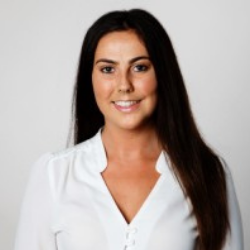
Keelin McGrath
MSc Aviation Finance '20
Market Analyst at Avolon
"After obtaining my bachelor’s degree in Business and Law, I chose to study the MSc Aviation Finance in the UCD Michael Smurfit Graduate Business school as I wanted to obtain a focused education which would allow me to build a career in the Aviation Industry. Indeed, my time in Smurfit did just that. The course curriculum was crafted by a collaboration between experienced faculty and industry experts which ensured I gained the base knowledge and skill set I needed to commence a career in the Aircraft Leasing Industry. Additionally, the seminars and company visits, which formed part of the course, allowed students to gain great exposure to the industry and an understanding of how the industry works in practice. Finally, the learning environment struck a great balance between teamwork, collaboration and independent learning. I am delighted and grateful to have attended the UCD Michael Smurfit Graduate Business School."
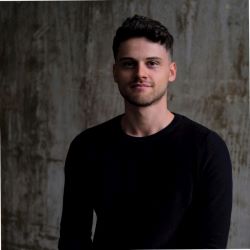
Erik Obendörfer
MSc Digital Innovation '19
Digital Strategy Consultant
"I'm genuinely grateful to have experienced the high quality of teaching at UCD Smurfit School while pursuing the MSc in Digital Innovation. I truly appreciated the course's interdisciplinary character that asks students to assess innovations and their impact on business and society from different perspectives. Being aware of the complexities of technological change helps me a lot in my new role as a digital strategy consultant. In addition to this, the collaborative culture shaped by supportive and inspiring people makes Smurfit an excellent place to study, one I can highly recommend to everyone."
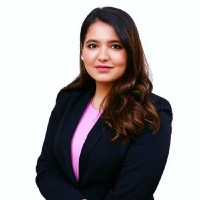
Jagriti Sapra
MSc Finance '20
Senior Tax Associate at PwC Ireland
"I chose UCD Smurfit's MSc Finance as it offers well designed core modules that combine both financial theory and application to real-world situations through multiple projects using industry leading software such as Bloomberg Terminals, MATLAB. The course is taught by world-class academics with extensive professional experience and the cultural diversity of my classmates allowed me to understand different working styles in an international environment. I am thankful to UCD for bundling vast knowledge in a short span that gave me an employability edge and helped me secure my current role at PwC. Overall, I would highly recommend this course for anyone who is eager to grow a career in finance."
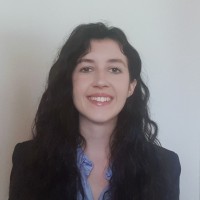
Sarah Nolan
MSc Renewable Energy and Finance '20
Client Trading Analyst at ElectroRoute
"I knew that choosing to study in UCD Smurfit would give me invaluable exposure to industry professionals across a multitude of areas within the Sustainable Finance and Energy sectors via our lecturers and the guest speakers invited to address us. These contacts and the knowledge they provided opened doors for both myself and my classmates and allowed us to begin our careers on the best footing possible. Most notably, I obtained an internship with ElectroRoute following a guest lecture from their team and have remained with the company, working to decarbonise and diversify Ireland’s energy system."

Elizabeth Meraz Lopez
MSc Digital Marketing '20
Customer Success Manager at Twitter UK & Ireland
"The MSc Digital Marketing at UCD Michael Smurfit Graduate Business School definitely prepares every student for the digital transformation needs that businesses require in a globalized world. The course offers an excellent variety of modules delivered by high-quality lecturers which give students the tools to apply them through course projects that involve digital strategies for real-world business problems. Digital is not an option anymore for businesses, it is a strategic solution for the business of tomorrow. This course offers a unique learning experience along with constant personal service and support from UCD Staff and Faculty."
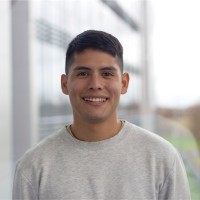
Charles Fennell
MSc Marketing and Retail Innovation '20
Sales Development Representative at Wrike
"I chose this course as it combined fundamental learnings that I could apply across multiple sectors. During my studies I presented on companies such as Boots and Vodafone, researched case studies on Dyson and Apple and had guest speakers from Zalando, IBM and Gym + Coffee. This programme ensured that I had an excellent background in marketing as well as the ever-transforming retail industry."
.png)
Nathan Talbot
MSc Quantitative Finance '20
Portfolio Analyst at Renaissance Reinsurance
"Coming from a Economics and Finance background I found the first semester helpful for solidifying my foundations in financial knowledge, but in the second semester I learnt all the quantitative technical skills that allow me to operate at a high standard in my current role as an Investments/Portfolio Analysts for a Bermudan based reinsurance company, where we manage a $22bn portfolio. The Numerical methods, Econometrics, Adv statistics and Fixed Income classes gave me the foundations to tackle the rigorous analytical world of Fixed Income products. The facilities and colleagues at UCD Smurfit are second to none in Ireland and I would recommend the course to anyone seeking a career in Investments."
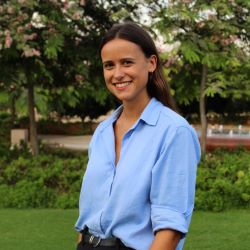
Lee Weisgerber
MSc International Management / CEMS MIM '20
Attachée de légation at Ministry of Foreign and European Affairs, Luxembourg
"My decision to pursue the double degree MSc in International Management and CEMS MiM at UCD Smurfit was driven by my intellectual curiosity and passion to immerse myself in international environments. Already during the admission process, the staff and faculty were extremely welcoming, and it became obvious that, to round off my academic career, a double Master’s at UCD would be exactly the challenge I was seeking. What I appreciated most, was the possibility to design the program based on my personal interests, not only through choosing from a broad range of courses but also through the various opportunities to get involved in the student community and gain international experience at one of the 34 CEMS partner universities. A love for collaboration and personal growth are two things, I continue to carry forward from my time at UCD and which help me in my professional career to this day."
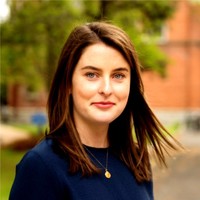
Brona Gilboy
MSc Project Management '17
COO at Little IA
"The MSc Project Management course taught me to bring structure to the volume of work, to prioritise, and set targets. Being part of a multi-cultural team during the course made the transition to Dubai a lot easier. The passion and dedication of the lecturers prepare you for what is ahead."
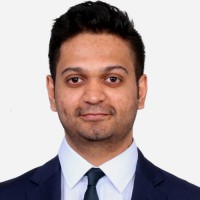
Abhiraj Mandyam
MSc Management '20
Risk Assurance Associate at PwC
"The MSc Management course gives you a strong foundation in business management studies. The joy of discussing subjects like economics, corporate finance , strategy and marketing within a multicultural student and teacher community is unparalleled. The Smurfit experience is world class because it’s not limited to just the classroom. I learned just as much outside. Be it via giving speeches in the Smurfit Toastmasters, attending the Global Leadership Programme or even playing tag rugby with my classmates. These experiences have led me to believe that the MSc Management course and the UCD Smurfit Community help create an environment that encourages curiosity and rewards initiative."
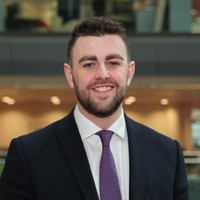
Shane McCallion
MSc Management Consultancy '16
Enterprise Sales Specialist at Qualtrics
"The MSc in Management Consultancy provided me with a solid overview of relevant frameworks,techniques and methodologies for a management consulting career. The time spent on consulting engagements is an invaluable experience and provides a highly supportive environment for learning to plan and deliver a successful project."
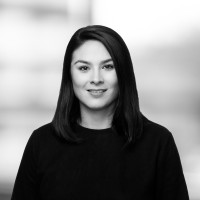
Rebecca Yue
MSc Aviation Finance '19
AVP Commercial Aircraft Leasing (Marketing) at Jackson Square Aviation
"UCD Smurfit School helped me transition from a career in the public sector to the corporate sector. I am a Chemistry graduate with no prior business or finance knowledge and the MSc Aviation Finance provided the subject knowledge and skills that I still use in my day-to-day working life. The emphasis on group work throughout my degree helped me develop the skills to work in multicultural and diverse teams, essential skills needed in a global environment. UCD Smurfit School is much more than receiving a degree - the long-lasting connections I made whilst studying through the UCD alumni networks helped to jumpstart my career."
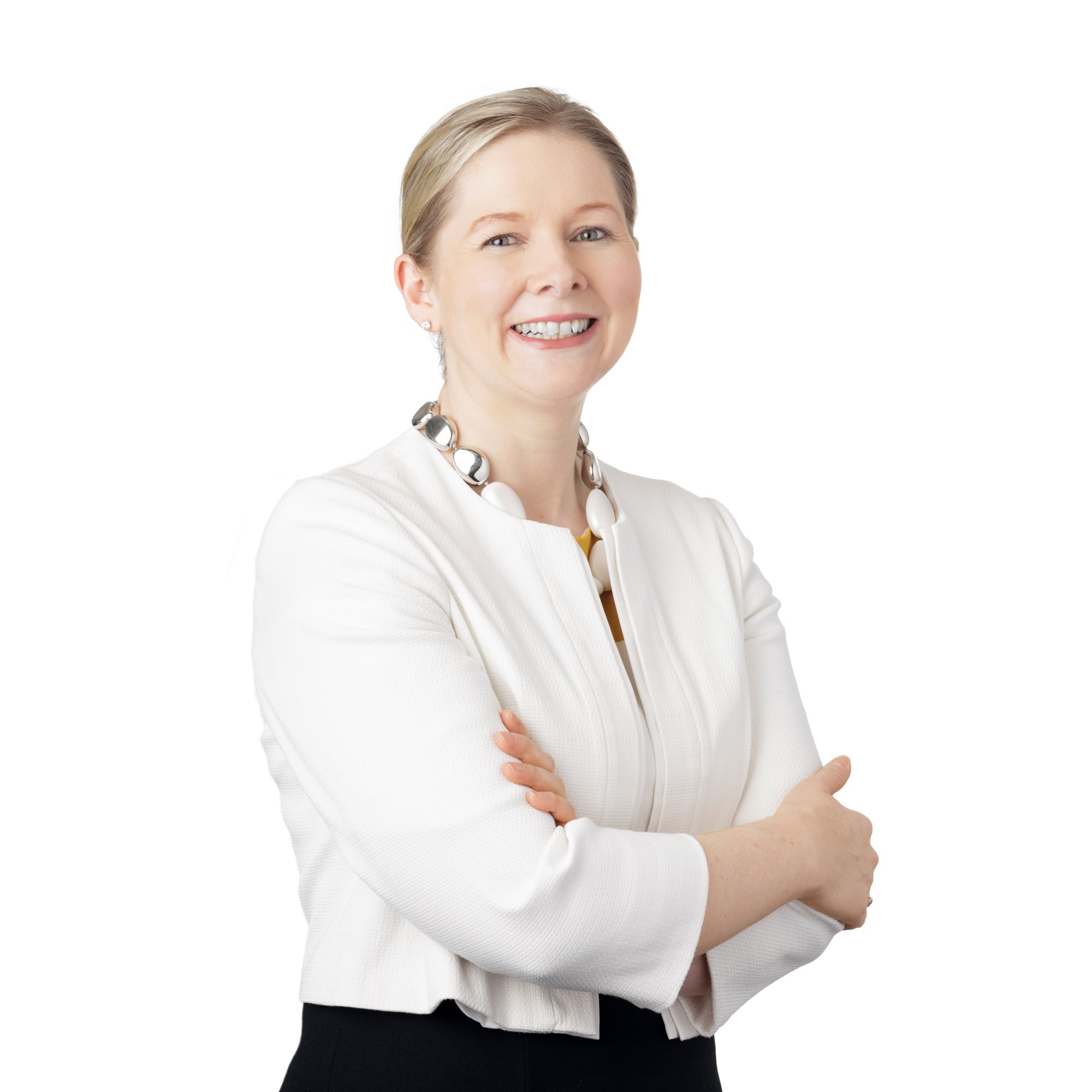
Mary Quaney
MAcc '00
CEO at Mainstream Renewable Power
Tell us about your education and career to date
I did the BComm International with French at UCD and then went on to a masters of accounting. I started my professional career at PricewaterhouseCoopers: I joined the corporate tax department, working predominantly in the area of inbound foreign direct investment to Ireland and it was a great experience.
After six years I decided I wanted to move into industry, and particularly to an Irish headquartered company. So I moved to Trinity Biotech plc where I spent three years before joining Mainstream Renewable Power as group tax manager in 2009.
Mainstream was only a year old when I joined. Over the years I took on additional roles and responsibilities within the finance team, working up to being appointed group Chief Financial Officer in 2017 and an executive director to the group board in 2019. In August 2020 I was appointed Chief Executive. So it’s been quite a journey.
What does your role involve?
We have an enormously talented group of people – around 340 in total – and my job is to lead this group so we achieve as much as we possibly can. Most of our people are based outside of Dublin as our main platforms are in Chile, South Africa and in Asia. We have our headquarters in Dublin and about 60 people based here. In normal circumstances we’d be travelling quite a bit and be very mobile.
What is your leadership style?
I would describe it as very open and transparent – I encourage people to get the issues on the table so we openly debate and work through challenges. I have quite a participative style. I always tell my teams never to leave a meeting saying, “I would have said this but...”.
I try to encourage and foster a spirit of openness and very constructive engagement and challenge, and the idea that together we can achieve far more than any individual.
I work with a really talented and committed group who bring the best of themselves to work every day. I see myself very much as a leader to facilitate the team being their very best together.
My style has definitely developed over the years and I have consciously thought about it quite a lot. One former colleague challenged me to think about the kind of leader I wanted to be. That comment and concept has been at the back of my mind for some time: What do I believe is the best way for people to work together and achieve as much as we possibly can?
What motivates you?
That’s an easy question. It’s very much the vision and mission we have as a company, which is to lead the transition to renewable energy. And right now it’s to accelerate that transition. Our core purpose is to do that as effectively as we can – to decarbonise energy systems, to build out more and more wind and solar plant and ultimately to combat climate change. The world is in quite a treacherous place if we continue on the trajectory that we have been on.
Also, I think it’s really important that there’s an alignment in the purpose of the organisation and what I believe in. When I joined Mainstream – and Trinity Biotech before that – a big driver was to be working in a company where I believed in the purpose and wanted to be part of that and to make a difference at the end of the day.
I always want to be in the room where decisions are taken and where strategy is debated and decided. It’s definitely always my aspiration to get right up to the senior levels of the organisation.
And I have been just so interested and engaged and motivated by everything that we do at Mainstream and everything the industry is seeking to achieve. It’s quite an amazing place to be.
Who or what has influenced or inspired you?
Many people over the years. Naturally I’ve been drawn to women leaders and – from a distance – learning from the leadership styles and the different identity that women leaders have. I was very fortunate when I started my professional career 20 years ago in PwC that there were many women partners. And back in UCD there were quite a number of women lecturers – Prof Niamh Brennan was one I always looked up to and I’ve followed her career over the years.
In the energy world there are fewer women CEOs so I have had to look a bit more broadly and outside of my sphere. Siobhan Talbot, the CEO of Glanbia, comes from a similar type of background to me so she’s someone I’ve always related to and I pay attention to what she’s saying. I think Anne O’Leary from Vodafone has her own identity and is a very strong and powerful leader. She again is someone I’ve followed over the years and would learn a lot from.
What has been your biggest achievement to date?
Being appointed CEO of Mainstream without a doubt. That’s certainly a highlight and a very privileged place to be in and a very privileged seat to have.
Are there any particular failures you have learnt from?
There are constant challenges and setbacks at times, particularly in the industry we are in and particularly in the earlier days when we were very much pushing against the boundaries of what was believed to have been possible for renewable energy to do.
But I would never use the word failure. Every challenge or setback is an experience to learn and grow from. In a difficult experience what you take from it is more important than whether it was an actual success or failure.
There’s no journey that’s linear and there are constant ups and downs in everything.
What are your tips and advice for anyone in the early stages of their career?
One of the first things that comes to mind is to retain that natural curiosity and to continue asking questions. It’s very much part of the university and third level way of life but I think it can get a bit lost once you move into the graduate and professional environment. I always say to people not to forget that and to use that power of natural curiosity.
I have learnt so much, and I do every day, from just asking questions and teasing things out. I’m now the CEO of a global renewable energy company even though my background is finance and I’m not an engineer. So just unpicking and questioning things has served me well over the years.
It’s also important to have resilience and to see setbacks as learning opportunities. Never see things as success or failure – it’s too binary.
The last thing I would say is don’t be afraid to be out of your comfort zone. That’s definitely served me well. I don’t think I would be in the position I’m in now if I had been fearful of moving out of my comfort zone. Don’t be put off by that sense of discomfort or not being in control and having all of the answers. You’ll grow and develop so much faster if you embrace it.
What are your plans for the future?
It’s all Mainstream. Within the company and in the renewable energy world in general we’re at a very exciting place. I think we’re really at a very pivotal moment where there’ll be a great acceleration over the next number of years. For me the future is to deliver as much as we possibly can in terms of that acceleration. And hopefully seeing a world beyond Covid where we can all meet face to face. It’s hugely exciting.
Insight Track
What is your fondest memory from your time in UCD Smurfit and Quinn Schools?
I have so many that it is impossible to pick a highlight so I would go back to the first day on campus and the sense of entering a new world of possibilities and opportunity.
How important is your UCD alumni network to you?
It is a big part of my personal life, in terms of lifelong friendships and professionally as a strong network of peers and colleagues.
What are your main interests outside work?
Life outside of work very much revolves around family as we have three young children.
Tell us something most people don’t know about you.
I double as a highly amateur but enthusiastic soccer coach at the weekends for U6 girls. Our youngest child has 'volunteered’ me. It is good fun and again well outside of my comfort zone.
July 2021
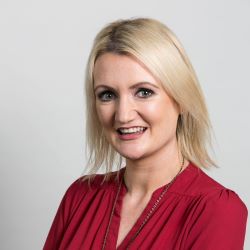
Rebecca Lee
MSc Marketing '14
Strategic Director at ClearStory International
Tell us about your education and early career
I’ve always been a lifelong learner. Before starting at UCD Smurfit Business School I studied marketing and event management on a part-time basis at DBS. Before that I studied journalism, also part-time, at Independent Colleges. And prior to that I went to DIT where I studied radio broadcasting.
In terms of my career, I knew from an early age I wanted to work in radio. I was on air, presenting for about 12 years at FM104 and Q102 and then decided I wanted to take a different direction with my career.
That’s when I went to UCD to do an MSc in Marketing. I was presenting the breakfast show on Q102 at the same time. So I’d be in work from 5am until 9am and then in class in Smurfit from 10am until 2pm, and sometimes 4pm. It was a very busy time.
About a year after completing the course in Smurfit, Q102 was offering redundancies. Because I was set on changing direction anyway, I took it.
I started looking for jobs in marketing, but given my extensive experience working in media – I also wrote for a lot of publications like the Business Post, the Irish Independent, Mail on Sunday and Sunday World on a freelance basis and still contribute on the side – I wanted to use my contacts, as well as my skills and education. I thought my best option was probably to enter public relations.
As part of my redundancy, I was offered a career coach who I met twice a month over the course of two months. When she reviewed my CV she identified my lack of hands-on experience in the PR industry as my biggest barrier to getting a senior role straight away.
I ended up doing an internship with PSG Communications – now Teneo – for about six months and that gave me a very good grounding. When I was looking for a job after that I was offered three roles. With the third one – the job I ended up taking with ClearStory International – I wasn’t even sure about going to the interview.
I’d seen an ad online for a PR agency that was just starting up – this was four years ago – and they were looking for an account executive. The company sounded really interesting so I went along to meet the founder and to tell him to keep me in mind when they were looking for someone more senior in two years’ time. That was a Friday and on the Monday he phoned to say he wanted me to join him in setting up the company. Three days into the job, he said he wanted to make me a director.
What is your role and what do you?
I’m Strategic Director at ClearStory International, which is a global PR agency. I get clients interviews in some of the world’s biggest media outlets from, Forbes to CNN and CNBC to Sky. We’ve worked with over 50 clients in 15 different countries and we’re focused specifically on the needs of companies that are early-stage and scaling up. My role is managing the team and the company, alongside my boss, and also managing clients and making sure their expectations are met and educating them on PR and media and how they work.
We’ve grown rapidly over the last four years and I’ve been very much a part of helping to develop the company and the processes. The plan from the beginning was to increase to 15 staff over the course of three years. We had five people by the end of year one, three more by the end of the second year, and 15 by year three. We are now at 17!
How would you describe your leadership style?
I am very aspirational. We work with a lot of younger account executives, interns and more experienced executives and I manage all of them. I’m always encouraging the team to think outside the box. I’m also very into letting people work autonomously. I trust them to do their jobs and to achieve what they set out to do. They only approach me if they’re stuck or they need to develop a more hard-hitting news angle or new stories around clients.
I also hope that through telling my teams about my journey and everything I’ve learnt along the way that I’m helping motivate them in terms of what can be achieved if you put your head down and stick at it.
What motivates you?
I’m motivated by challenging myself every day, doing the best job I possibly can and pushing myself out of my comfort zone.
My dad, who’s actually a Lecturer in Accountancy in UCD Business School, has always been my biggest critic and that has really helped me. Even if I disagree with him at times it’s made me think that maybe I need to do things differently, to work harder, and that there’s a better way of doing things. He’s constantly pushing me.
Who or what inspires you?
My dad – and mum! – would definitely be among my inspirations in terms of personal style and my goals in life.
In terms of my business inspiration, it would have to be Richard Branson. He started small and worked his way up to run a massive global entity and still remain very well rounded. When I worked in radio I got to meet him at the launch of Virgin Media in Ireland. I remember seeing him coming in on this truck and his teeth were so white! Everyone wanted to meet him because he had such a good story to tell and he just came across as so personable, speaking to everyone. People who achieve that level of success and who are genuinely grounded are people I would like to be like. A key learning is to never forget where you came from.
What are your biggest achievements to date?
In terms of business, it is helping to establishing a global PR agency from the ground up alongside my boss.
Personally, it was climbing Mount Kilimanjaro in March 2017 and then doing Everest Base Camp six months later. I trained for six months for Kilimanjaro and I’m so glad I did because it meant I enjoyed the experience. And that’s why I did Base Camp – I was so fit after Kilimanjaro. I developed an ‘I can conquer the world’ attitude.
Doing something like that makes you think of things differently. When you take time out from the world and have nothing else going on, you start to reassess what’s really important and you start to think about where you want to go next in all areas of your life. It was amazing.
Any notable failures?
At the end of my time in Q102 the company had just established UTV television and I really wanted to work there. I applied for eight jobs in TV and six further positions in radio and much to my disappointment, didn’t get any of them, despite being in the company. I arranged to meet the CEO of the television station to get some feedback as to where I was going wrong and what I could improve on to get me in the door. That was probably one of my biggest business failures – he gave me feedback but I still didn’t get any of the jobs! I ended up co-ordinating the interviews for other people for all 14 roles. It was very hard to take at the time.
In my personal life, I failed the driving test the first time. Everyone else in my family passed the first!
What advice would you give people starting out?
My general advice for everyone is to never take no as an answer in business. If someone rejects you once, it’s not to say they’ll reject you the next time. If you’re passionate enough about developing a career within a certain sector, you should keep on trying and not give up.
I also think you need to find a job that best fits your education, your skills and your life experience, which is just as important as education.
If you’re out of work and looking and maybe going in a different direction and slightly older, I’d highly recommend seeing a professional and getting them to talk you through your CV. You’ll be surprised at what they can identify as opposed to what people who know you can identify. I had a lot of skills I didn’t know I had accumulated over the years. The career coach really brought that out for me and coloured my CV with all the things I was missing previously.
Any plans down the line?
I’d love to be the CEO of a communications company. I don’t think there are enough female CEOs out there and I think all of my skills, work experience and education have provided me with a clear way to get there. Everything I’ve done so far is really standing to me and the only way is up from here. I know – I’m one of those annoying positive people!
Insight Track
How has your degree benefited you?
It has shaped me into the person I am today. I learned how to work with live clients in Smurfit, something I am eternally grateful for.
What is your fondest memory from your time in UCD Smurfit School?
I remember working on a marketing project for Orpens Cider and designing a cider cooking book. When presenting I handed cider muffins out to all my classmates and the client. Needless to say I along with my team mates got an A for that one!
How important is your UCD alumni network to you?
Extremely important. I believe this life is all about who you know and that you can learn a great deal from other people. I think my inherent curiosity is what drives my passion for journalism and working in communications.
What are your main interests outside work?
I love sailing and badminton. It is my goal to get a powerboat licence and later this year I will be playing badminton league.
Tell us something most people don’t know about you?
I used to want to be Oprah Winfrey. Still haven’t given up on the dream!
What piece of technology can you not live without?
My iPhone, I have around 3,000 contacts for people I have met over the years. It is my bible.
What is your pet hate?
I can’t stand people who are negative. We all have bad days, but the next one could be different. I truly think everyone needs to visit a developing country at some stage in their lives. I was in India years ago and it was an eye opener.
Where is home and why?
Home for me is Bray, Co Wicklow. I just bought my first-ever house and I’ve never felt so content. Also, I think Wicklow offers the best of both worlds: one minute it feels like you’re in Dublin, the next, the countryside.
What charities or causes are closest to your heart?
The Alzheimer Society of Ireland. My grandfather who I was very close to died from dementia. It was devastating to watch someone you love deteriorate before your very eyes and they don’t receive much funding for care at all. I feel very strongly about it.
November 2021
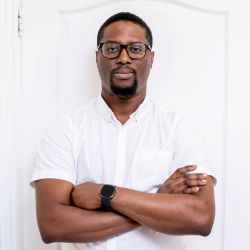
Nubi Kay
MSc iBusiness '14
Startup Programs Lead at Paystack
Tell us a bit about your educational and career background
My name is Kayode Nubi, but I’m generally called Nubi Kay. I’m from Nigeria and I moved to Ireland in 2013 to study in Smurfit Business School on the back of being involved in a tech start-up in Nigeria. I had done my undergrad in electrical engineering at the Eastern Mediterranean University in Turkey and then did a Master’s in IBusiness - Innovation Through ICT (now MSc Digital Innovation) in UCD.
The plan was to spend one year here doing the Master’s and to then go back to Nigeria to work on another start-up. But while I was at UCD I won Accenture’s Leaders of Tomorrow Award for developing a smartphone app. That landed me a six-month internship with Accenture and then I got a full-time role there for two-and-a-half years in the Financial Services Division working as a Project Manager and a Business Analyst. I was mainly working on projects with bank clients.
I got exposed to fintech there because of Accenture Fintech Innovation Lab and I thought it sounded interesting. I knew because of my first start-up how hard it was to integrate payments online and so I got to learn about Stripe. I subsequently joined Stripe in 2016 and I’ve been there for almost five years.
I joined Stripe as a product specialist, supporting customers, including helping start-ups get up and running. I did that for about a year and then moved into a Programme Manager position, which I did for another year. Then I moved into a sales role as I wanted to explore other parts of the organisation. That allowed me the opportunity to get back to my roots and deal with start-ups. So I was working with CEOs, CTOs and Heads of Finance in start-ups to figure out how to better leverage Stripe to help them with their growth and scaling up. I did that for about six months.
What is your current role?
In the last couple of months I’ve just moved into a new role on the Paystack side. Stripe acquired Paystack, a Nigerian payments company, for around US$200m last year. It’s part of Stripe’s expansion strategy into Africa. I’ve been seconded to the Paystack side as Start-up Programmes Lead. My job will be to explore how Paystack can better work and support start-ups in Africa in their growth. It’ll involve talking to founders and the start-up ecosystem stakeholders, like investors, accelerators and incubators, and developing programmes to make things easier for these companies and their founders.
Once the world opens up there’ll be a lot of travel back to Africa. We’re in Nigeria, South Africa and Ghana right now and we have plans to launch in three more countries over the next few months and that will require me to be on the ground engaging with start-ups.
What motivates you?
I’m very motivated by helping to enable growth, progress and success in people, whether it’s individuals with their careers or working with start-ups and businesses and seeing them leverage technology and optimise their processes and get tangible growth as a result.
About 18 months ago a colleague of mine in Stripe and I started a community fund, HoaQ.club, to invest in early stage start-ups and it’s been phenomenal. We started it as an experiment and before the end of this year we’ll be deploying about a million dollars in African start-ups and founders. That gives me energy – playing the role of facilitating partnerships, knowledge transfer and anything that leads to tangible growth and development.
Who are the main people who have inspired you?
There are a few people. My dad is one. He’s a Pastor and a Professor in Nigeria and he’s somebody who’s dedicated to a life of service and lifting up people around him: as a Pastor he feeds your soul and as a Professor he feeds your mind. He could have gone and done anything he wanted to do professionally and looked to make a lot of money but he put himself in a position of service to his congregation as well as his students.
It was great to see that example not too far off.
My grandma is another influence. I guess my dad got the influence from my grandma so I got it from her.
And my wife is another big influence. She’s definitely one of those go-getters. I’ve seen how she’s evolved as a person, from an athlete who got so many accolades and then going from an undergrad to doing a Master’s and now a PhD in so short a period that we've known each other. She's done all these gracefully while parenting our two wonderful daughters, Kike and Ire.
How would you describe your leadership style?
I have a coach kind of style. I want to be in the trenches with you but at the same time give you the room so you can grow yourself. My style is really hands on and engaging but trying to ensure there are results. As a coach or a mentor I’d be asking what’s the goal and what’s the plan, and then checking in regularly to see what progress has been made, what the blockers are and how I can help to unblock those.
So I won’t be telling people what to do, but looking at what needs to be done and helping them to work towards the goal or outcome.
What’s your biggest achievement to date?
I’m only getting started. There are things I’m proud and privileged to have been able to achieve but I haven’t scratched the surface yet.
Is ongoing learning important?
It’s very important. I’m a big believer that you never stop learning. And that’s beyond the school walls. I like to consume knowledge in many different ways, whether it’s from listening to podcasts, reading articles or interacting with people who are on the same level or have gone before you or are behind you. There’s always something to learn from those interactions. I’m definitely one for continuous learning.
What’s your best piece of career advice?
The biggest one is to start with what you have and where you are. I think it’s important not to push things back to when you have a certain amount of money or everything is perfect to start things. Even though what you want is not what you have right now, just start building towards that.
When we started the fund it was just several of our friends putting together €1,000 each into our first deal and we just did that again and again and again. You start with what you have.
Do you have career or business aspirations for the future?
I try to keep an open mind and focus on what looks like success or fulfilment for me. And that for me is enabling others to be successful. I try not to think about roles or titles but think more about how I scale the level of enablement that is possible.
Insight Track
How has your degree benefited your career and/or personal life?
My degree at UCD made me a better manager and entrepreneur. It provided me the knowledge and skills to work cross-functionally and think critically through problems to come up with solutions that are both feasible but also scalable.
What is your fondest memory from your time in UCD Smurfit School?
Running into my wife-to-be on the Smurfit campus while she was canvassing for votes to run for student representative. It happened to be on the same day as the Smurfit Ball. I later ran into her on the day the votes were being counted. She didn’t win the seat but I often joke that she got the better prize, me.
What are your main interests outside work?
Faith – I am music and word minister at the Kings Arena Church, Dublin.
Family – spending time with my wife, Nana and our daughters, Kike and Ire.
Travel – I love to visit new and old places to make and relive memories.
Food – I love to cook and also eat out.
Tell us something most people don’t know about you
I started a band in college (Turkey) and composed original music that outlived my stay at the institution.
What piece of technology can you not live without?
My smartphone – communication, payment and resource all in one.
What is your pet hate?
When people are unkind.
Who’s your favourite writer and what’s your favourite book?
The writer is Malcom Gladwell and the book is Stubborn Attachments by Tyler Cowen.
And what is your favourite musician?
Brymo.
What is your favourite place in the world to visit and why?
Istanbul because it’s the best of both worlds – Europe and Asia.
Where is home and why?
Home is where the heart is – a little bit of Ireland and Nigeria.
What are your insider tips for visitors to Nigeria?
Be open minded and try new things. It helps to have a local friend while exploring.
Name three things on your bucket list
- Climb Kilimanjaro
- Hot air balloon in Cappadocia
- Dinner with Jay-Z
What charities or causes are closest to your heart?
- Habitat for Humanity
- Girls in STEM
- Foodcloud
November 2021
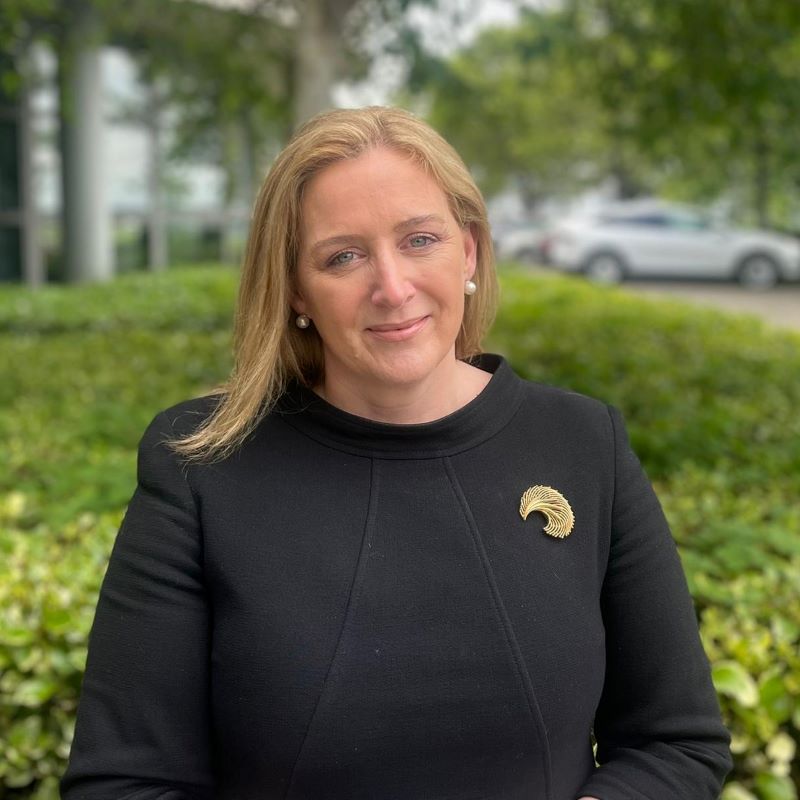
Neasa Kane-Fine
MSc Digital Marketing '14
Director, Project Communications at RPS
Having left school at a time of huge unemployment in the 1990s, Neasa Kane-Fine opted to put her studies on hold and start her career straight away. She learnt on the job and is now Director – Project Communications at RPS, where she combines her interest in construction and communications with a passion for work with positive impact.
Tell us a bit about your background and early career
When I left school in 1992 I did a secretarial course and started work at Carr Communications a year later. I had always wanted to study but unemployment was over 15% at the time with graduates emigrating en masse, so I decided I’d work first and study later on at night, and my parents backed me up on that.
Carr Communications was like an informal apprenticeship. I got amazing formal and informal training from people like Terry Prone and Siobhan Molloy and many other leading communications professionals. I started as assistant to Terry Prone and progressed on to being a Junior PR Account Executive. After about three years there a client asked me to work for them as Communications Co-ordinator in Tallaght Hospital where they were building what was at the time the biggest construction project in the country.
A couple of years later, PR expert Mary Murphy, who I’d known from Carrs and had since set up her own agency, asked me to join her boutique PR agency. I worked with Mary for 10 years on some amazing projects that transformed the physical infrastructure of Ireland, including the M50 motorway, the regeneration of Ballymun and many water and waste management projects like Race Against Waste.
I come from a construction background so I’ve always been interested in business and in building projects. My mum was a Teacher so sharing knowledge and communications was also really important growing up. Those elements combined when I went to Tallaght Hospital and cemented my career when I moved to work with Mary Murphy.
In 2008, the agency was acquired by RPS Group, an international consultancy firm. I joined RPS as a Director and have been leading the Project Communications Business Unit here since 2013.
Tell us a bit about your current role
In RPS we solve problems that matter. So my role is a combination of client advisory and strategic communications consulting, mainly for renewable energy, water and sustainable transport projects vital to futureproofing Ireland. It includes public consultation, stakeholder engagement and issues/crisis management.
I’m also managing the RPS project communications business unit which involves leading a team of professional staff, business planning, public tendering, business development, contract management and ensuring that I achieve monthly profit and revenue targets. People and relationships are key to everything we do in project communications. I love the mix of advisory and management; and I have amazing clients and work with a brilliant team.
Do you have a defining moment that helped shape your subsequent career?
When I had my twins in 2006 I had to make a huge decision to continue working full-time and that has defined my career since then. It was hard but it was manageable and I was on fire! I was working really hard during the day and focused on the kids in the evenings. I’ve an amazing husband who plays a very equal part in all of that, which made it possible to progress and develop my career alongside raising our children.
How would you describe your leadership style?
I try to be very much a collaborative, communicative leader with my team. I am also very reflective in terms of looking back on lessons learned and always seeking to drive for constant improvement.
I’m of the mindset that there are no mistakes, just learnings. If we can learn from any mistake that’s really good. My team know that I will stand up and be counted and I will always have their back.
I try to plan ahead and anticipate issues/risks and prepare for them insofar as possible.
Also, I have learned over the years that business is business: it is vital to be able to stand back from our emotions and not take business issues personally.
What motivates you?
It is also really important to me that I work on projects that solve problems and improve people’s lives.
I’ve been involved in shaping the narrative around environmental protection over the last 20 years, delivering campaigns on sustainability, water, waste and biodiversity for the government and the European Commission. It’s really fulfilling to see that people now understand the impact of their activities and care more about the environment than they did 20 years ago – but we still have a lot to do.
How important is ongoing learning to you?
It’s very important to me. I had always planned to go back and study but I wasn’t sure when. I wanted to validate what I already had achieved in my career but also wanted to learn more. I would have loved to do an MBA but I had small twins and the fees were very high, so that was not logistically feasible at the time. The digital marketing master’s was just starting and I wanted to learn about the theory behind social media and digital marketing as well as their role and context within traditional communications where I worked. That’s why I chose that master’s.
I loved the course. It was really interesting and I would happily spend my life up in the Smurfit Business School in Carysfort. It’s such a lovely environment physically but the lectures were also really interesting. A key value of doing the course was also the other students many of whom worked in social media including Google and Facebook so there were great insights and engagement in the class.
Apart from formal study I always read and keep abreast of changing trends and thought leadership on management and communications. I try to put aside time each week for informal study including reading articles, listening to podcasts and I usually have a business book on the go too – along with a good courtroom drama or thriller.
I also think it’s important to build a network and to contribute and give back to whatever profession one is in. I do some volunteer activity with the Public Relations Institute of Ireland (PRII) and with the wider communications profession. That is very fulfilling for me. I believe it is really important that, as we progress our careers, we are available as mentors and role models to support others starting out on their career journeys.
What is your biggest achievement?
I’m always achieving different goals in work but probably the two years when I juggled very small kids and part-time study with working in a very busy role was a big achievement.
What is your best piece of career advice?
Someone said to me years ago that you only regret what you don’t do. There’s never a perfect time to do anything but you have to grab opportunities when you have them. I embrace that kind of approach. You really don’t regret what you do.
Also, never stop learning. That’s advice I got from home. I always try to keep myself informed through formal and informal learning.
What are your career aspirations in the future?
I love working and volunteering and will probably be like many of my inspiring clients and colleagues who have never retired and are still providing expert advisory in their 70s. Now that my sons are older I am starting to think about my next career chapter, which will ideally be in a leadership role that benefits from my communications expertise and my knowledge of working in the infrastructure and environmental sectors.
Insight Track
How has your degree benefited your career?
Studying in my 30s validated that I knew more of the theory and context than I thought I did and that gave me greater confidence too.
What is your fondest memory from your time in UCD Smurfit School?
Not the group projects!
What are your main interests outside work?
Time with family and friends, volunteering, theatre, reading crime and courtroom dramas and a good Netflix binge like Bridgerton.
Tell us something most people don’t know about you
Nothing - I’m an open book.
What piece of technology can you not live without?
There are days when I’d happily go off grid, but then I’d miss my Kindle.
What is your pet hate?
People who limit themselves and give up too easily.
Do you have a favourite book or writer?
Oscar Wilde.
And what is your favourite band or musician?
Any live bands, especially after the last two years.
What’s the last play you went to that you loved?
Gabriel Byrne’s Walking with Ghosts, in the Gaiety this year – laughed out loud and cried.
What is your favourite dish to cook?
Sunday roast with all the trimmings.
What team do you support?
I’m a Lilywhite (Kildare GAA).
What is your favourite place in the world to visit and why?
Paris for the miles of beautiful architecture and so much culture and style.
Where is home and why?
Wherever my husband and sons are.
Name three things on your bucket list
Istanbul on the Orient Express; drive on a racing track; and go to a rugby World Cup final.
What charities or causes are closest to your heart?
The Dublin Rape Crisis Centre; and tackling child poverty and neglect.
July 2022
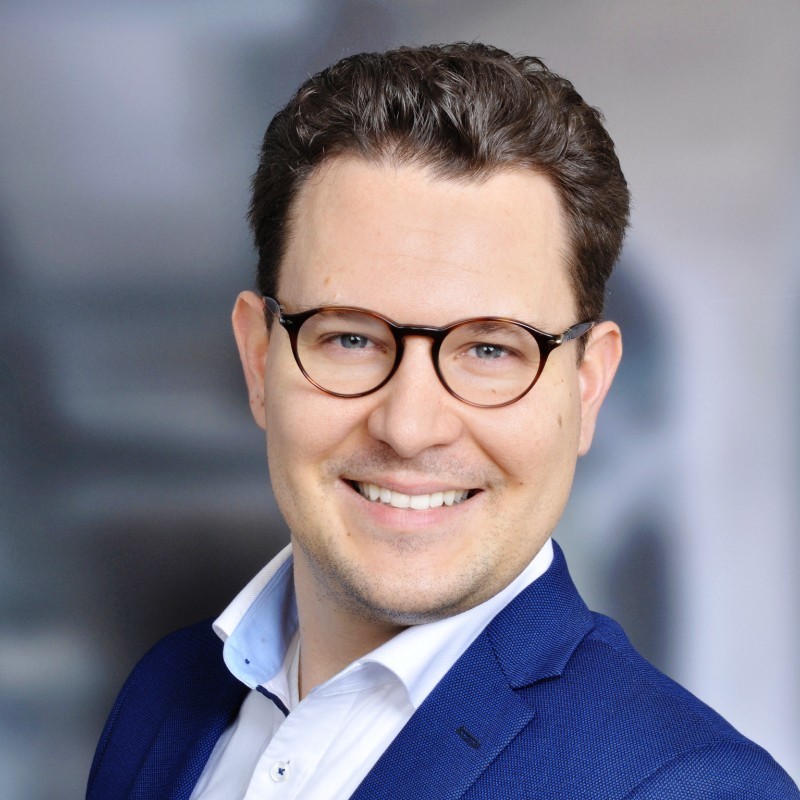
Hubert Halopé
MSc in International Management / CEMS MIM '16
Platform Curator at the World Economic Forum
With a strong international perspective and a passion for leveraging innovative technology for good, Hubert Halopé has found his niche in the World Economic Forum, where he is Lead/Platform Curator of Artificial Intelligence and Machine Learning.
Tell us a bit about your education and early career
My parents are French but I was born in Germany and grew up in Osnabrück in Lower Saxony. I have always been advocate of European values and European spirit and hence my ambition from my early years on to do something internationally. It’s also why I wanted to study in English and have an international scope.
I started with my Bachelor’s Degree in Economics and Business Economics at the University of Maastricht in the Netherlands. From high school I’d always enjoyed subjects relating to economics and politics so this was a perfect combination. My time in Maastricht allowed me to spend one year in China back in 2013/4, which was very exciting and influenced my life and character a lot. I did one semester exchange at the Renmin University of China in Beijing. Then, after finishing my Bachelor’s Degree I returned to China for a half-year internship at BMW, working in import/export at operational level. It was a very exciting and unique environment.
I wanted to continue studying while having a more pragmatic study track, hence the natural choice for me was to do a Master’s in Business or International Management. I applied to do the CEMS programme at the UCD Michael Smurfit Graduate Business School. My brother had previously done it and enjoyed it and it brought him a lot in terms of personal growth so I said I want to do the same.
My time at UCD Smurfit was the best time of my student life. It was a great student community, great professors and classes and I still carry all the learnings with me today. I did the second half of this holistic programme in Universitá Bocconi in Milan.
As part of the CEMS programme I did an internship in PWC in Digital Strategy Consulting in Luxembourg and then transitioned into a full time role there. This drove my passion for new tech and AI being the next thing after digitisation.
After a while I wanted to experience something different so I went to work for Délifrance, a small to medium sized company in the global food sector. That was through a government sponsored programme for young talent in France aimed at helping companies build out their export business and internationalise. This was a really pragmatic experience that gave me exposure towards what digitisation means and what change management means. During this time I was a Global Project Manager for the CRM system and other sales technology tools that were implemented across the business units and countries.
Then, at the beginning of 2019, I turned to another challenge at the World Economic Forum, where I work today, based in Geneva. I started on the partnership team for Europe and North America and brought my technology lens and digital lens from my past background. I did that for a bit more than two years and helped to move the needle internally for fostering or influencing more tech-driven processes and decision making. I also got to know the artificial intelligence (AI) team, which I joined one and a half years ago.
I’m now the project lead and central curator of the artificial intelligence and machine learning platform. What that means is that I curate initiatives and scale projects around AI governance and AI for good. That’s my life task for now.
What does your role involve?
The World Economic Forum is the international organisation for public private partnership. My role is to work with multi-stakeholder communities, bringing together leaders and decision makers from the private sector, public sector and also civil society, including academia to collaborate on projects around responsible AI and AI for good.
One example of this is with our Centre for the Fourth Industrial Revolution in Turkey (C4IR Turkey – we have 16 of these centres across the world), where we work with the local business community on leveraging AI to combat, predict and mitigate wildfires. My role is to bring together the necessary experts and align everyone to a common vision, and also make sure what we’re doing can be replicated around the globe and be freely accessible. The World Economic Forum is a not-for-profit so everything we do is openly available and freely available.
What motivates you?
It might sound a bit kitschy, but really what motivates me is doing good for the world. My role currently is to shape artificial intelligence to benefit humanity while minimising the risks that come with this general purpose technology.
The vision of the organisation I’m working for is also very important to me – in the case of the WEF it’s to improve the state of the world.
Last but not least, it’s also the people I’m working with – both my team and the people around the globe who have the same passion and are leveraging this exciting technology to do good.
Who has influenced or inspired you?
Many people have inspired me and influenced me on my journey. I would have to mention my parents and their resilience– they always keep their heads up when facing challenges and never give up. Also, I look at my siblings who teach me every day to dare.
If I look towards my organisation, the executive chairman Klaus Schwab is very accessible and I admire how he has reinvented himself and the Forum continuously. And I mustn’t forget my current and past managers who have actively shaped my leadership style and aspirations.
One more person I’d like to mention is Michael Smurfit himself. He gave a keynote at the very end of my study programme at UCD – it was an inspiring speech and his humour has really stuck with me.
How would you describe your leadership style?
Based on team mates’ feedback and various leadership assessments, characteristics that keep coming up are that I’m an empathetic leader, people oriented and a true believer that everyone has a talent to offer. I believe that sometimes talent is a very obvious and sometimes less so. I think a good leader should get this talent out of people and make them grow.
I also like to have a clear vision and to take a structured approach in trying to support that vision.
Is ongoing learning important to you?
Ongoing learning is extremely important, especially nowadays with all the technological advancements that are shaping our lives and jobs. I think ongoing education and learning is key to success, as are staying curious and being adaptable.
I recently concluded an executive programme at MIT around AI and AI Strategy for Business which really helped me to rethink the topic on AI governance, the future of jobs and also AI for good. It’s really influencing my role and the project I’m working on.
But informal learning is also important. I really like reading books and these are not necessarily related to my job but bring in creativity and new perspectives.
What’s your best piece of career advice?
For me it’s listening to your gut and doing what you’re passionate about. It takes a bit of courage but I would recommend everybody to do that – it hasn’t disappointed me so far.
I would also say everything is possible. This is something I was convinced of before, during and after being a student and I still hold to that. Ultimately, it’s related to following your gut. I would say follow your gut, decide what you want and go for it.
What are your plans for the future?
I can see lots of interesting challenges lying ahead in my current position and organisation and I’d like to widen and deepen my leadership role. In the very long run, I’d like to try out my entrepreneurial skills. Technology is something I’m passionate about so if I did start a start-up one day it would for sure be innovative and tech-oriented.
Insight Track
How has your degree benefited your career?
It has given me a solid business knowledge foundation and a network to tap into.
What is your fondest memory from your time in UCD Smurfit School?
The Three Tun Tavern.
How important is your UCD alumni network to you?
More and more important.
What are your main interests outside work?
Horseback riding and outdoor activities.
What piece of technology can you not live without?
Email.
Do you have a favourite writer or book?
Sapiens by Yuval Noah Harari.
What is your favourite dish to cook?
Omelette.
What is your favourite place in the world to visit and why?
Switzerland, love the mountain views.
Where is home and why?
For now, Switzerland having lived here for five years. It just fits with my French-German background.
What charities or causes are closest to your heart?
Environment, child safety (online/offline), education and culture.
July 2022
 R.jpg)
Marguerite Larkin
MAcc ’92
Executive Director and Group CFO at Kerry Group
After a long and successful career at Deloitte – where she was a Senior Partner, gained extensive international experience and held a number of leadership roles, including Head of Audit and Assurance and Risk Advisory – Marguerite Larkin joined Kerry Group in 2018 as group Chief Financial Officer and Executive Director.
Tell us a bit about your education and career to date
I’m originally from Galway and did a BComm in the late 1980s in UCG, or NUI Galway as it is now known. I’ve always had a strong interest in business and that extended to finance and accounting once I started my studies. I was fortunate enough to be sponsored by Deloitte to do a master’s degree in accounting in the UCD Michael Smurfit Graduate Business School. From there, I went on to qualify as a chartered accountant.
I spent many years in Deloitte, primarily based in the Dublin office but also in the Chicago office at an early stage in my career, as well as undertaking a number of international assignments over the years. I joined Kerry Group in 2018 as CFO and Executive Director.
My career is punctuated by a number of chapters. While I was in practice, I held many roles across different industries, with a strong specialism in consumer-facing industries. I was appointed Partner relatively early in my career – I was just 30 when I went through the process. I spent almost 16 years as a Partner and during that time, as a member of the Executive Leadership Team, I had the opportunity to lead clients and markets, various industry groups, cross-functional teams, and laterally I was Head of Audit and Assurance.
It came to that stage where I was evaluating whether I would continue in professional services or if there was another chapter to my career. The opportunity arose to become the CFO of Kerry Group, an organisation I had always admired.
I very much enjoyed my career at Deloitte and learned a huge amount and enjoyed immensely advising and working with clients. And now I’m thoroughly enjoying my time in Kerry. It’s truly a global business and the world’s leading taste and nutrition company with operations in over 150 countries, market cap of circa €20bn and upwards of 22,000 employees.
My role is very different in terms of directly influencing outcomes as opposed to advising on outcomes and being part of the executive team that sets strategy for the group. It’s been great to have had a taste of both.
What does your current role involve?
As group CFO, I lead the team that has responsibility for the overall financial management of the group and for strategic initiatives, such as investments and capital structure and allocation. And as a Member of the Executive Board and Group Executive I am part of the core team that has responsibility for operations across the Kerry organisation.
At the end of the day, my role is about leading people – success is achieved through your teams and your people. A key part of my role is around making sure I am influencing and devoting time where I can have the most impact.
A significant part of my role involves liaising with our investors and shareholders. Before Covid, that was very much an international role in the context of meeting our shareholders across various different markets. Since March 2020, it’s been much more of a virtual experience.
How would you describe your leadership style?
My leadership style throughout my career has been collaborative. In Deloitte, that meant collaborating across different services and advising clients. And part of the success of a global organisation like Kerry comes down to the teams and people collaborating across jurisdictions, functions and technologies on a daily basis. No one person has all of the answers; as a leader you have to make sure you’re open to views across diverse teams and different perspectives.
I’m a firm believer in surrounding myself with an excellent team – knowing that you’re only as good as the team you have with you. It’s important to build trust in the team and to ensure that priorities and areas of focus are aligned. I am hands on and I encourage open, constructive challenge – the best ideas and solutions come through good debate and discussion!
As part of my leadership style, I try to be personable and bring passion and enthusiasm to the role. That’s really important and probably never more so than in the environment over the last two years.
What motivates you?
One of the things that motivates me is being part of a team of like-minded people. Since I’ve joined Kerry, I’ve been impressed by the talent right through the organisation. We have a clear vision and ambitious growth strategy. Being part of a high-performance environment and culture is a real motivator. It’s always been part of my career story to date and continues to be.
Reflecting more broadly, it’s also important to me to be part of an organisation that has a clear purpose. That was very clear in Deloitte. And Kerry is very much driven by its purpose. Collectively as an organisation we spent a lot of time articulating that as – ‘Inspiring Food and Nourishing Life’. A huge component of that is around sustainability and sustainable nutrition.
It excites and motivates me to be part of an organisation that is a global leader in taste and nutrition and is also a leader in its ambition and strategy to influence the nutritional profile and sustainability of food.
A Kerry ingredient or Kerry product is consumed by approximately a billion people on a weekly basis right across the globe. Central to our Beyond the Horizon sustainability strategy are improving the nutritional profile and reaching over 2 billion people with sustainable nutrition solutions by 2030.
It motivates me to be part of something that has a meaningful contribution to society. It’s very inspiring when I reflect on everything our people have done in all of our operations and manufacturing plants around the world to help keep food on the shelves and protect the supply chain over the last two years. All of our people have made an enormous contribution and we’ve played a role in supporting the communities we operate in and directing investment into innovation around immunity, proactive health, reduction of food waste and improving the nutritional profile of food though our clean label technology capability and functional food technology.
On a more personal level, my family and my children are super important to me and motivate me on a daily basis!
Who or what has influenced or inspired you?
I take inspiration from many sources.
I’ve had numerous mentors throughout my career at various junctures and they’ve been a really an important part of my journey to date. They’ve been both personal and business mentors.
At a very early stage my father was a key influencer in my life. Sadly, he passed away very suddenly when I was in college. Through that whole time my mother demonstrated enormous resilience. I often reflect on that – and even more so now; I believe you learn so much through having to be resilient and overcoming a crisis.
I’ve also learnt from the different stages through my career and from company CEOs, CFOs and leaders I’ve worked with over the years. For me, it has been about building a portfolio of influences and looking at it all very holistically.
What are your tips and advice for success?
Rather than giving tips or advice I can just say what has worked for me.
I would always place value on having a mentor and it doesn’t have to be a formal arrangement. To really benefit from a mentor you have to be open to alternative opinions and to taking input and advice along the way.
What has really helped me through my career is seeking out responsibility at an early stage. I encourage that as a part of the culture and, as an organisation, Kerry is known for that too. It’s another reason why Kerry is a good fit for me.
One thing I learned early is to get out of your comfort zone and to be comfortable operating in a little bit of grey where you don’t know the end destination or know all the answers. Life is not black and white so learning the skills to deal with ambiguity is a key leadership requirement for me.
Finally, I’ve always believed it’s important to love what you do and to be passionate about it. And to also surround yourself with the absolute best team possible.
What do you see as your biggest achievements date?
At a personal level, my biggest achievement is my family: my three children and my very supportive husband who has an equally successful career.
Professionally, having had a successful career as a Partner and leading the audit and risk practice of a big four firm was certainly a highlight. It was also good from a diversity perspective as at the time, I was the first female leader of a big four audit practice in Ireland.
And it’s great honour to be CFO of Kerry, which is a global business and one of our country’s most inspiring success stories.
Any plans for the future you want to share?
Kerry has a clear growth strategy and we’re hugely excited about the opportunity ahead: the company has a long track record of completing acquisitions and continuing to grow and deliver value for our shareholders – this is a key focus for the future.
From a personal perspective I have a lot yet to achieve in my role and that’s my focus in the short term.
Insight Track
What is your fondest memory from your time in UCD Smurfit School?
Making lifelong friends.
What are your main interests outside work?
Travel, gym, eating out with friends and family and spending many Saturdays and Sundays watching my kids play sports – hockey, soccer and rugby.
Tell us something most people don’t know about you
During lockdown we got a rescue dog (like many families) – Ozzie is now firmly part of the family!
What piece of technology can you not live without?
Predictably my iPhone!
What is your pet hate?
People who continuously complain rather than coming with a different perspective or solution.
Do you have a favourite band or musician?
I normally like to listen to chilled out music such as Tom Waits or Sam Smith.
What’s the last gig, play, film or exhibition you went to that you loved?
Given Covid the latest movie was probably a Marvel movie with one of my children.
What is your favourite dish to cook?
Cooking in our house is a family affair so I would have to call out a good warming curry or beef stroganoff where the tastes and flavours develop over time.
What teams do you support?
My daughter is a keen soccer player and has converted me to Man City. Otherwise, I would have to call out the Irish rugby team.
What is your favourite place in the world to visit and why?
I love to travel and have numerous places that I will return to but a place close to my heart is Connemara and the gorgeous Gurteen and Dogs Bay beaches.
Where is home?
In Dublin with my family.
Name three things on your bucket list
Visiting the Galapagos Islands when my youngest son is old enough; play golf (never have enough time or patience!); and return to Patagonia with our children.
What charities or causes are closest to your heart?
Charities that support children’s welfare – I spent a number of years as a Board Director of Irish Youth Foundation and was immensely impressed by the many children’s charities that IYF supports.
March 2022
Discover our Rankings and Accreditations
X
Youtube
TikTok
Bluesky
MBA Blog
Podcast











